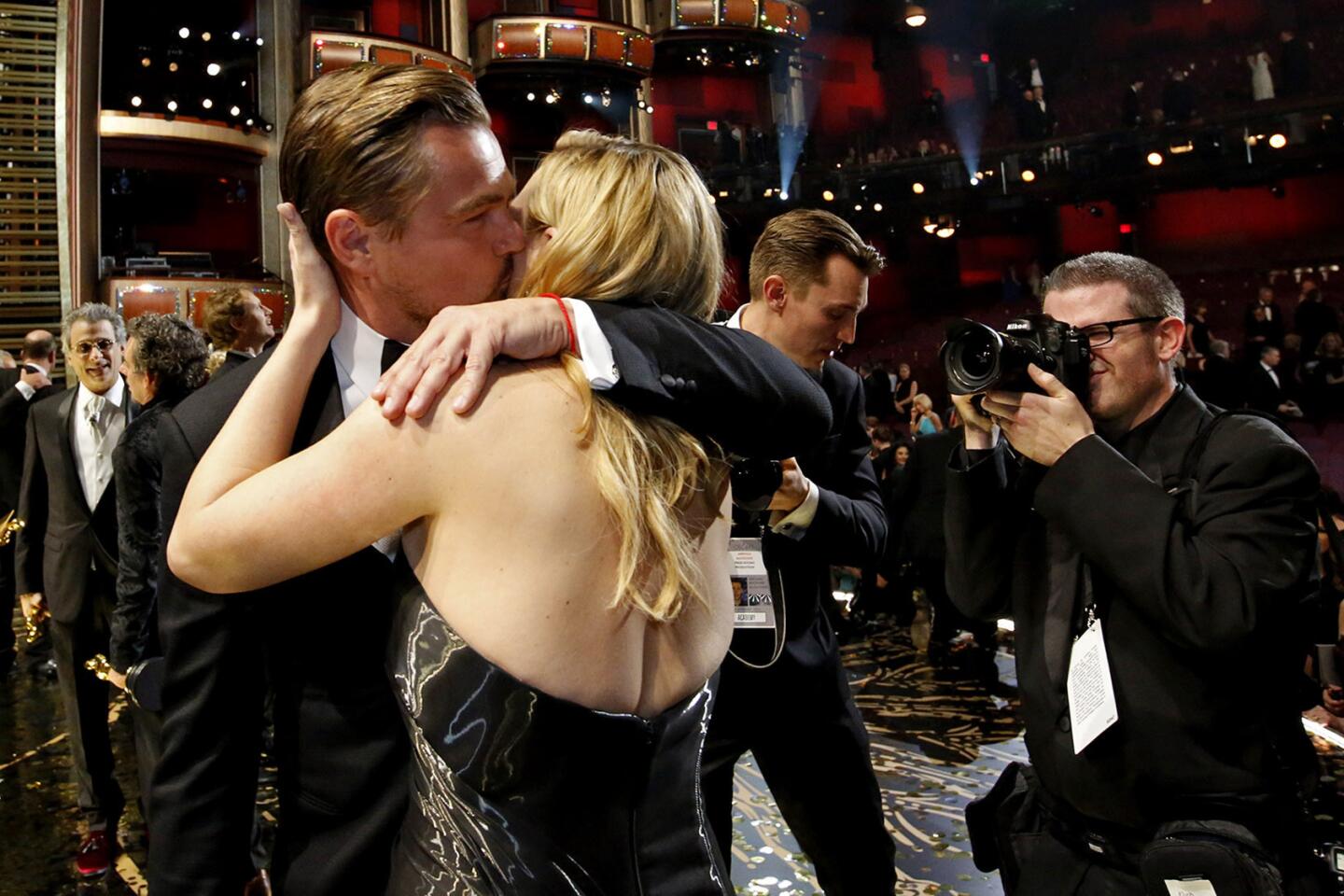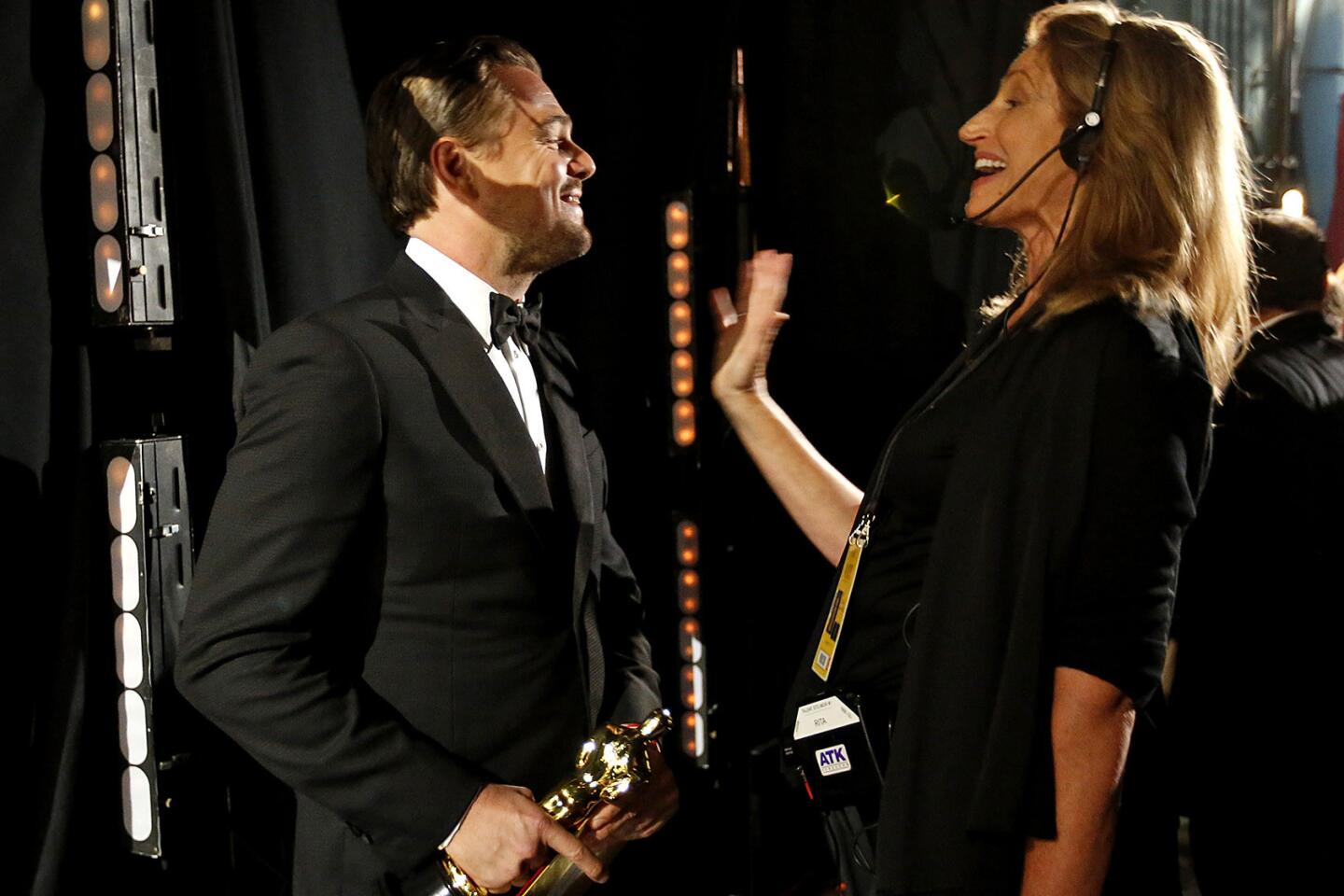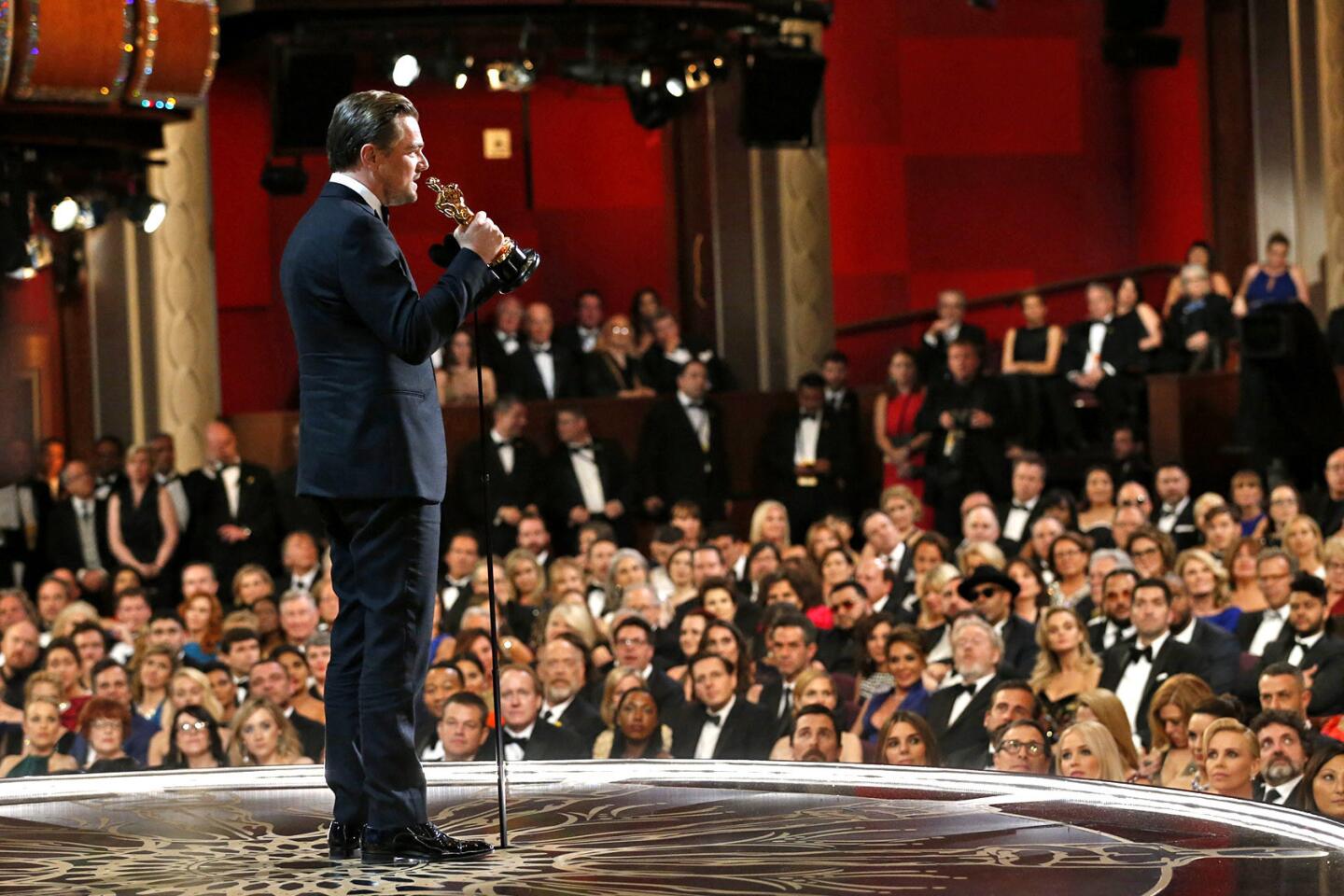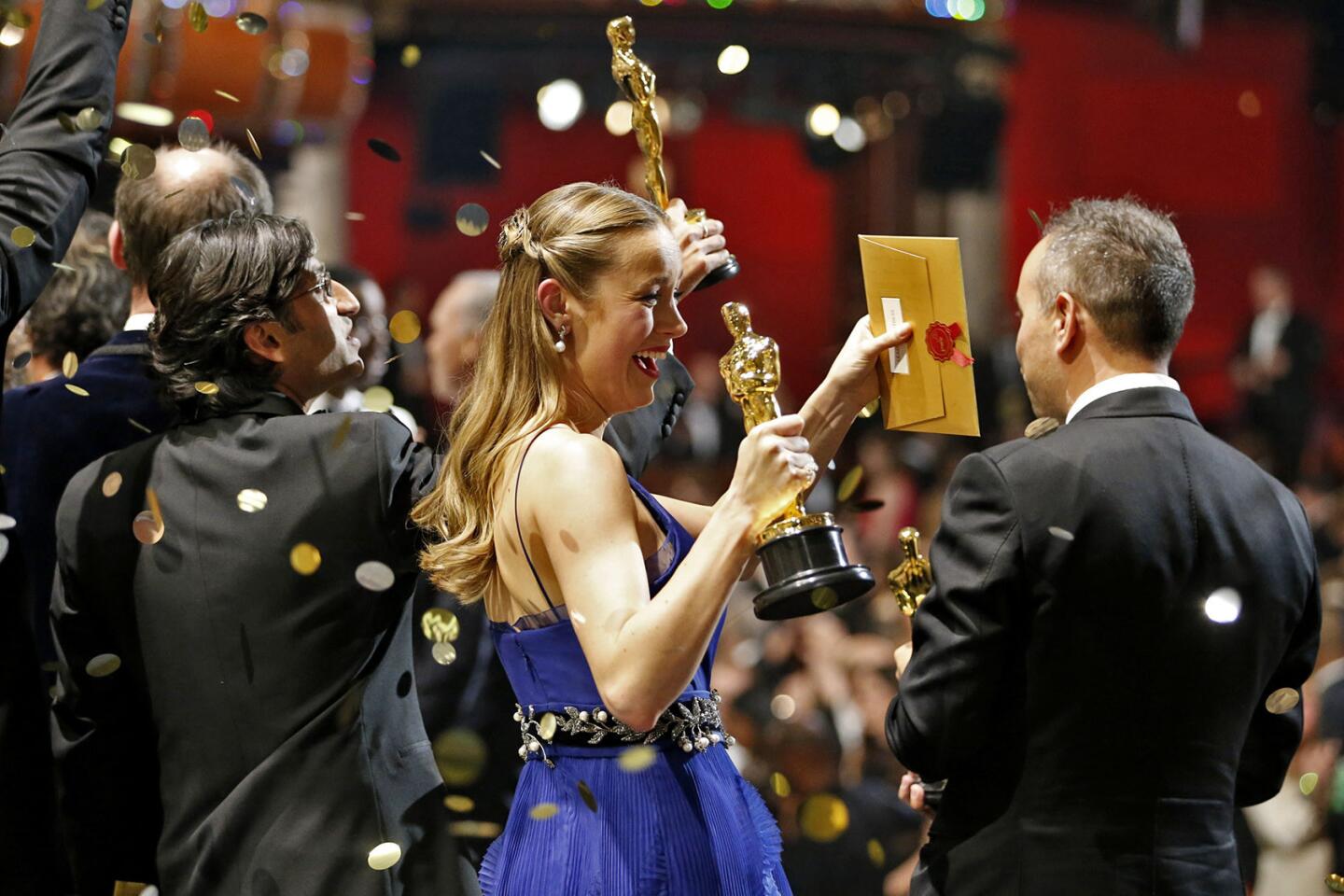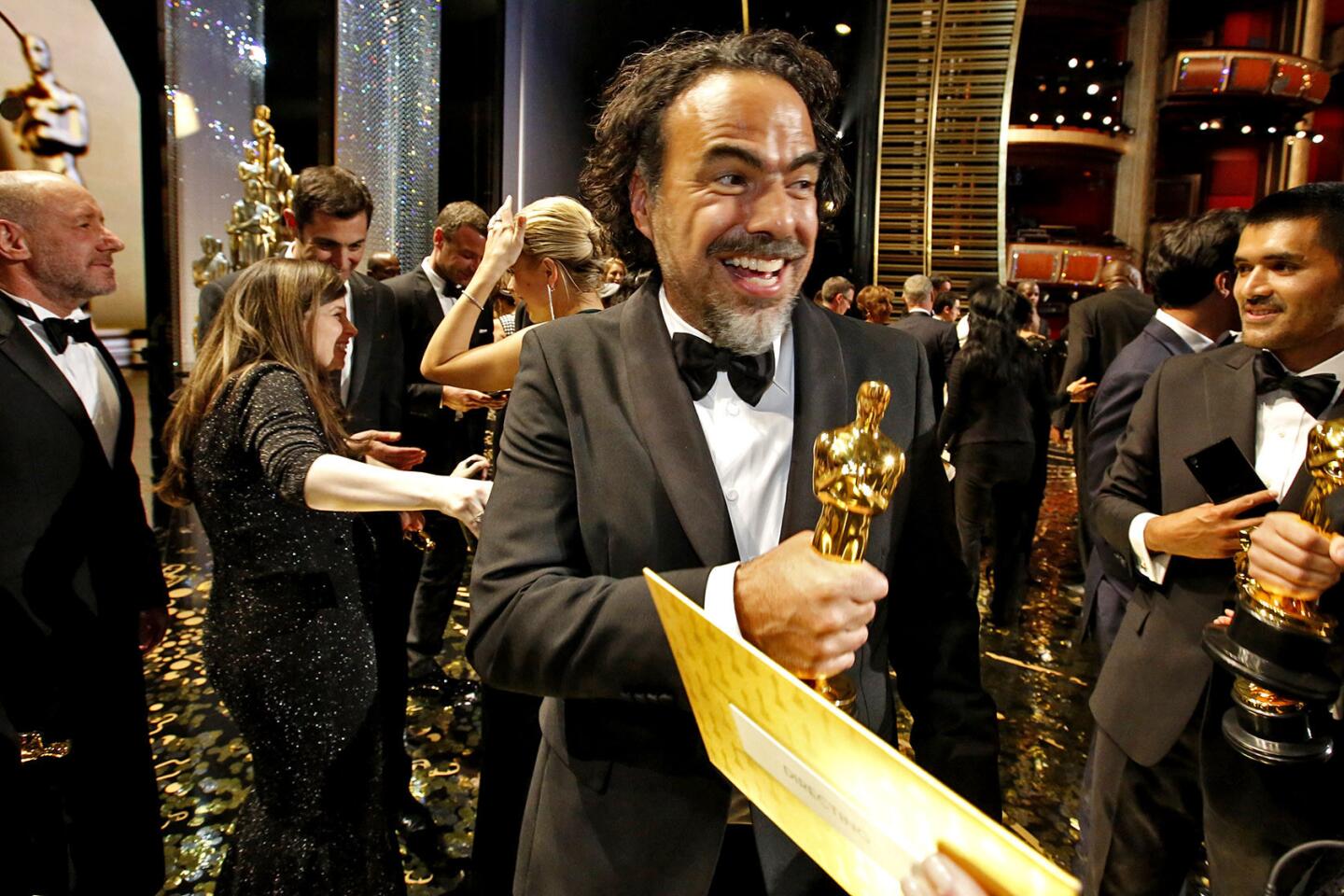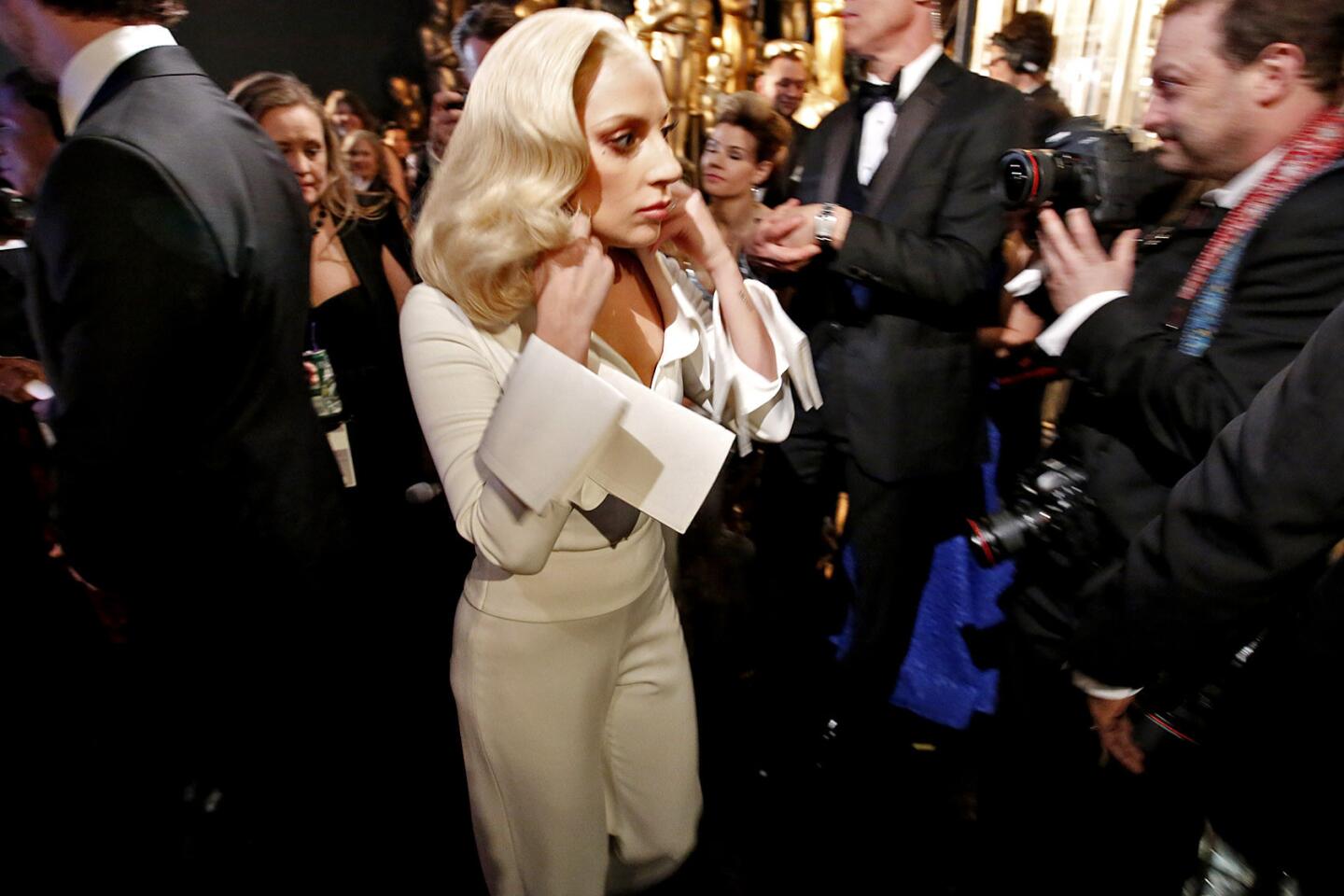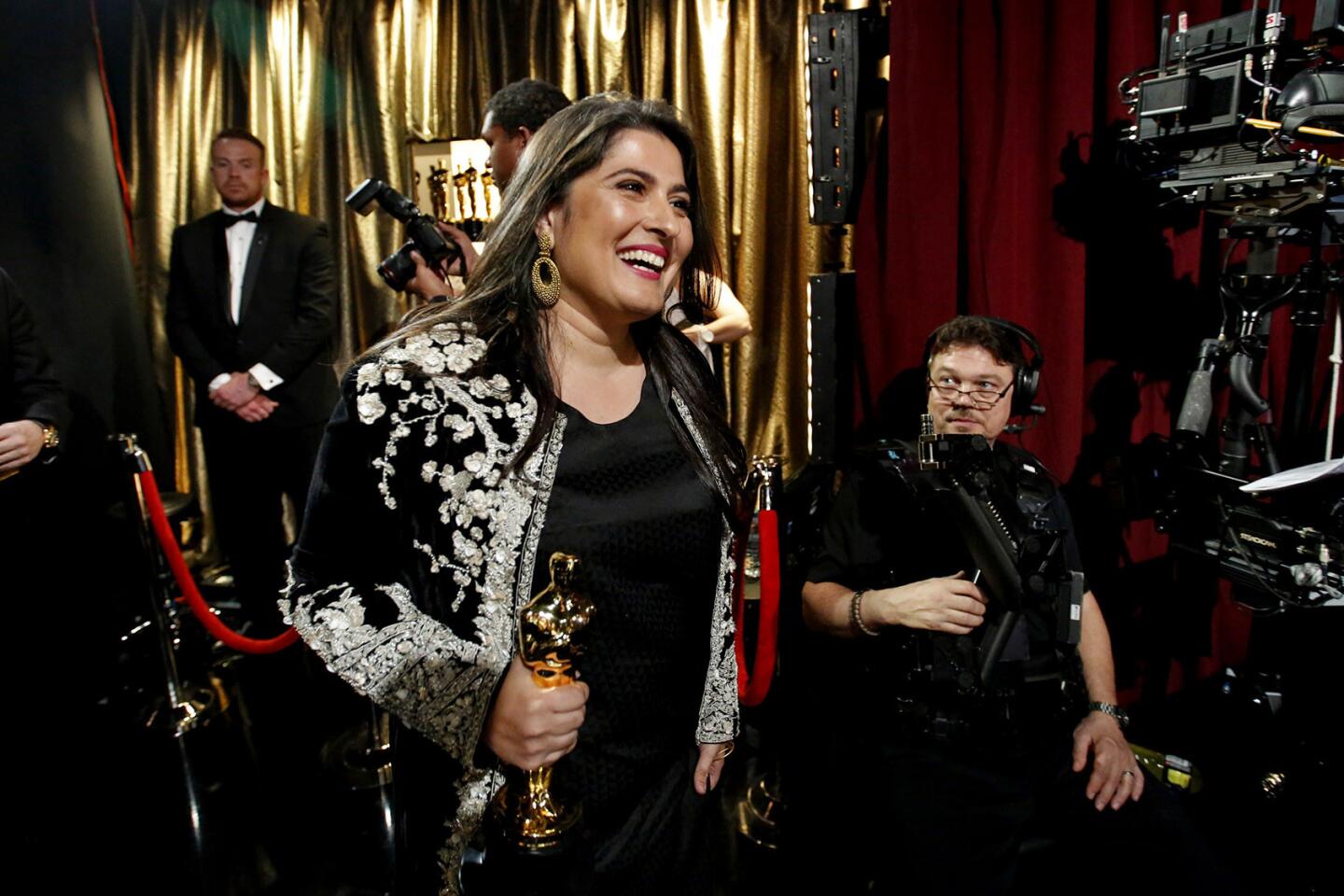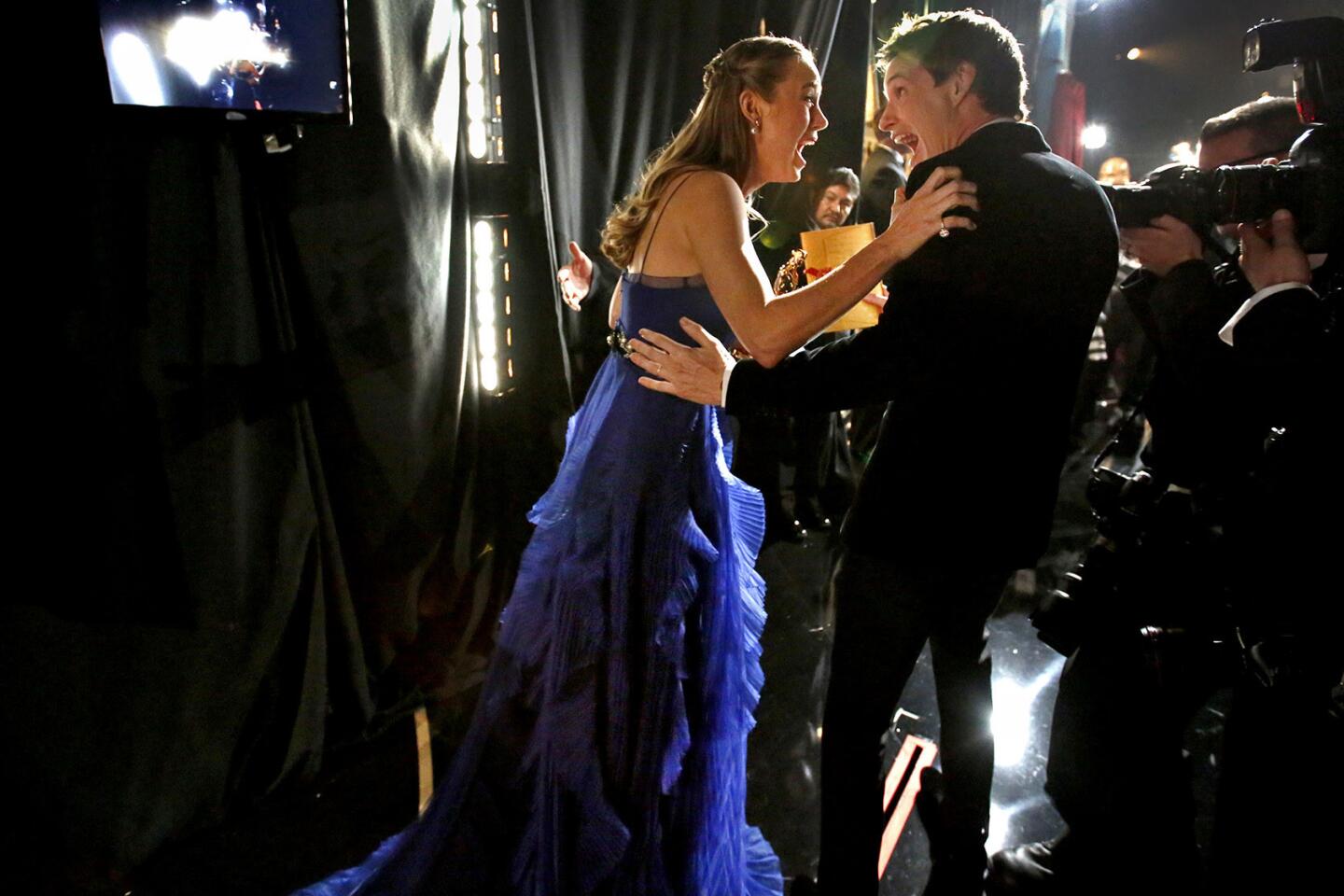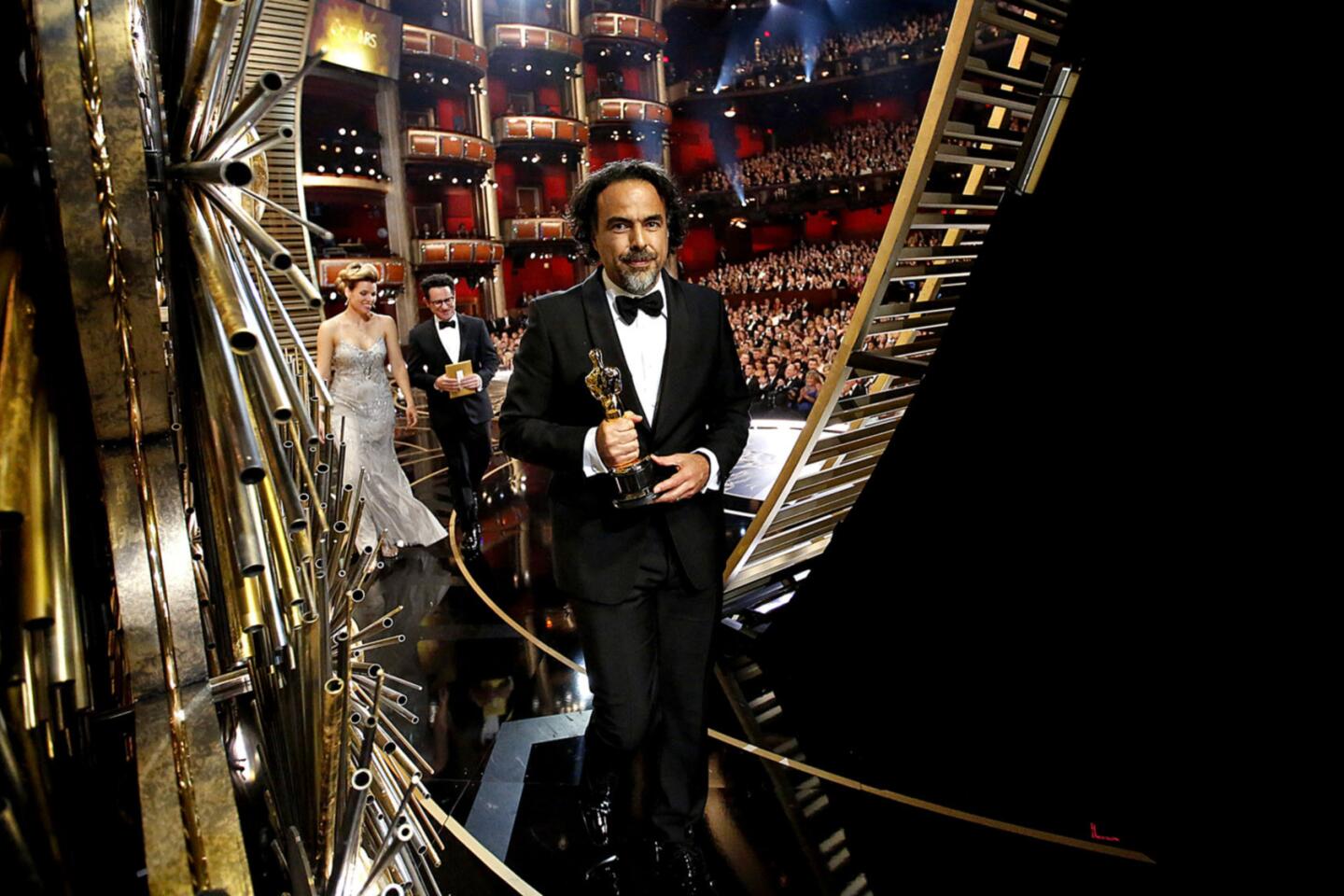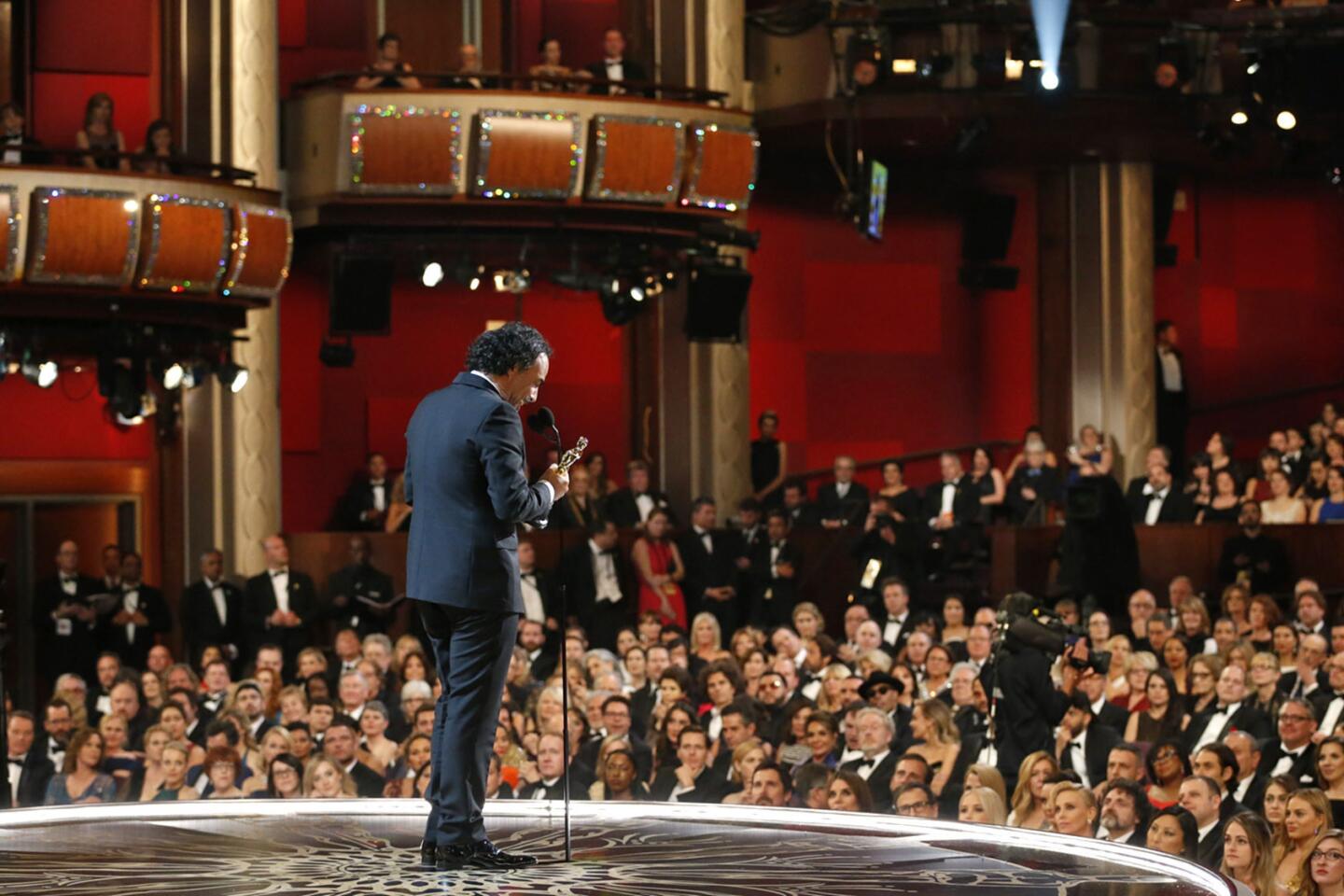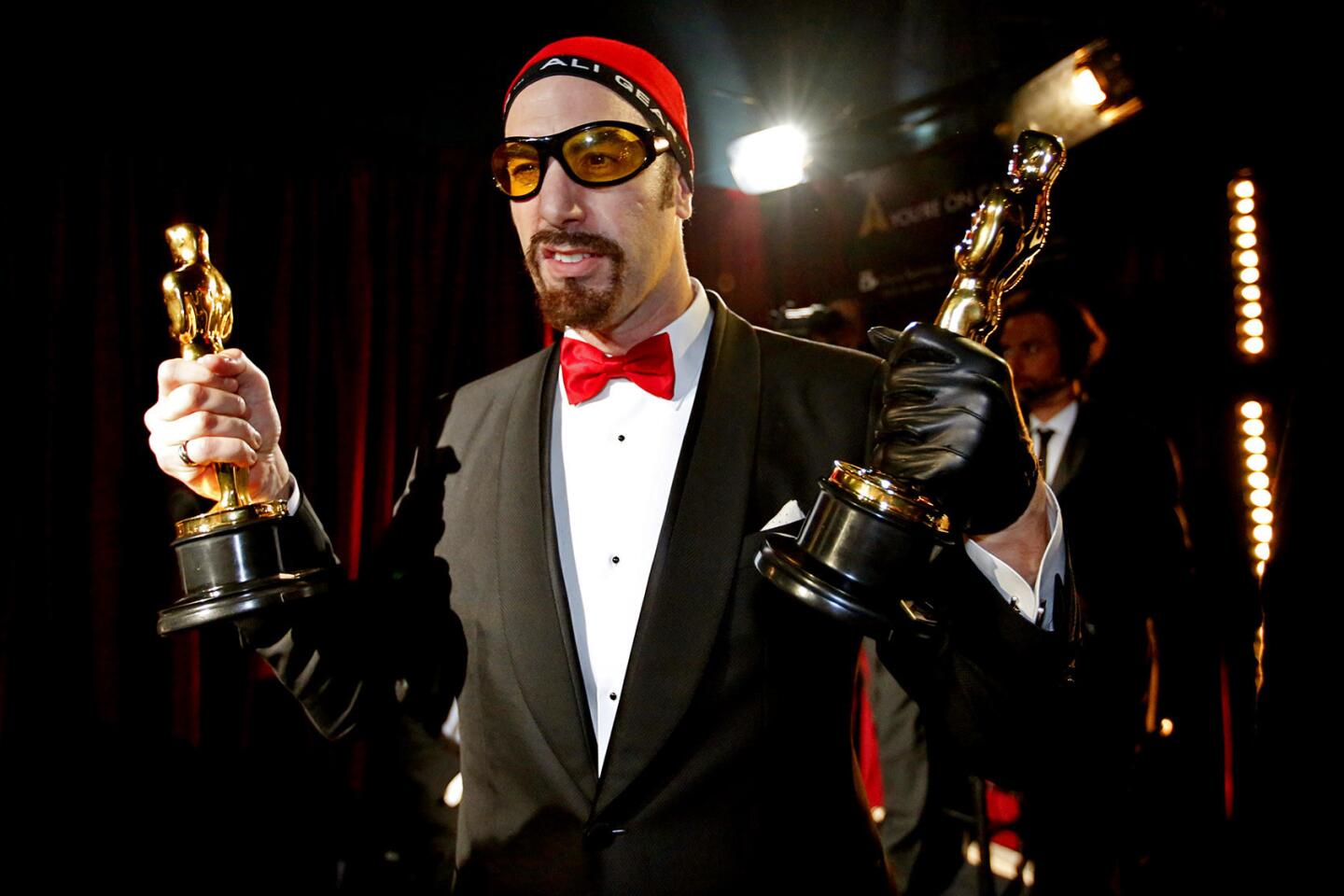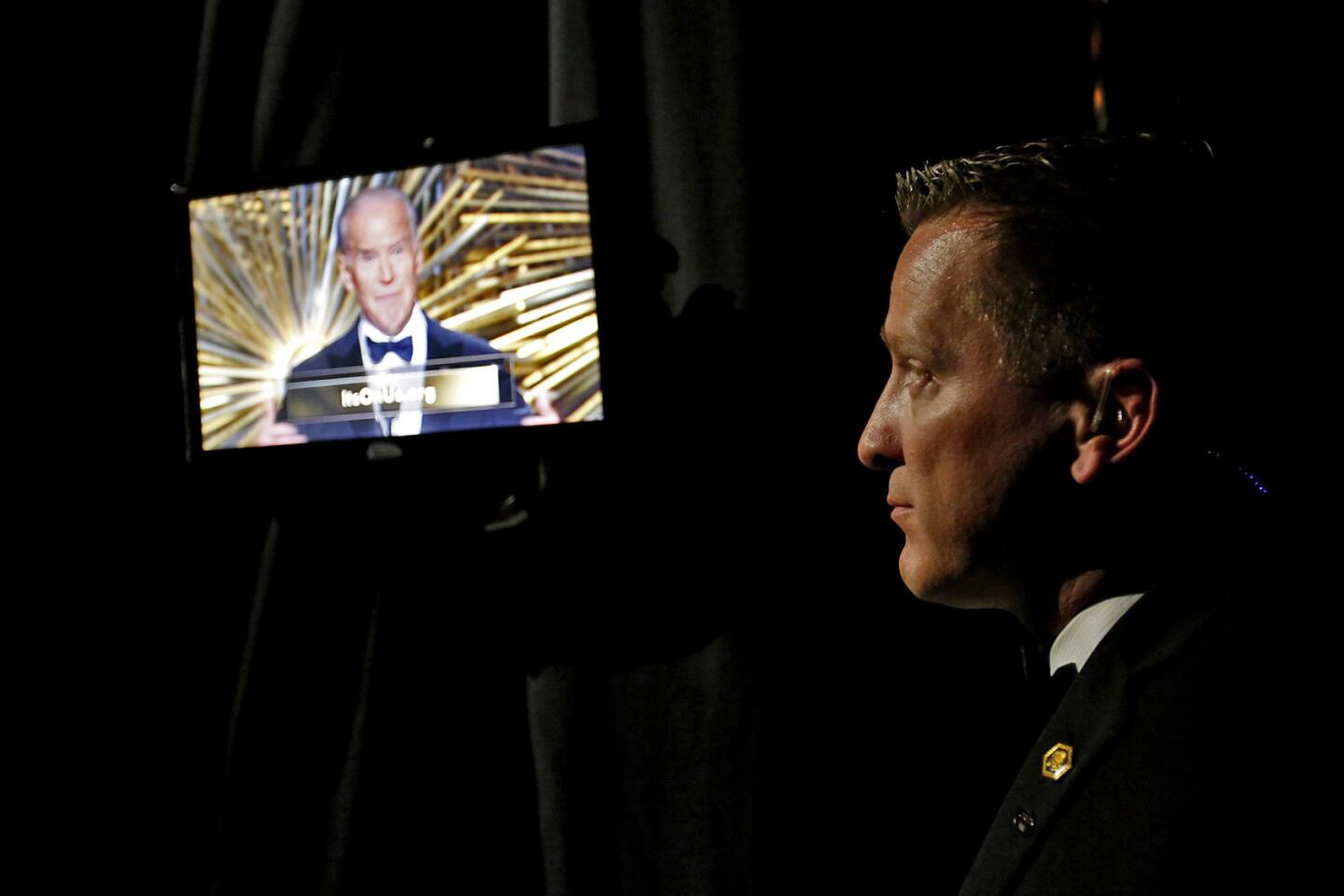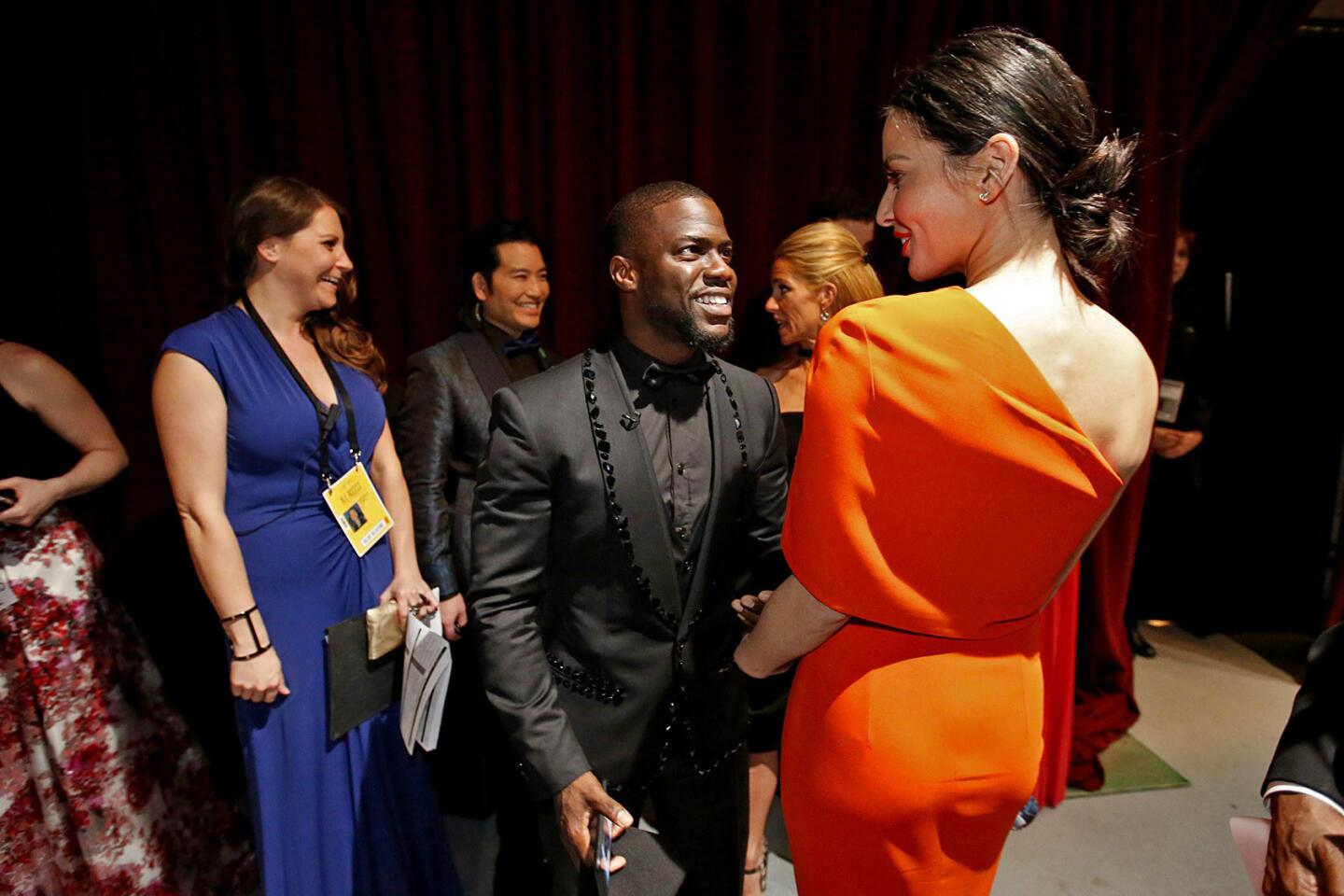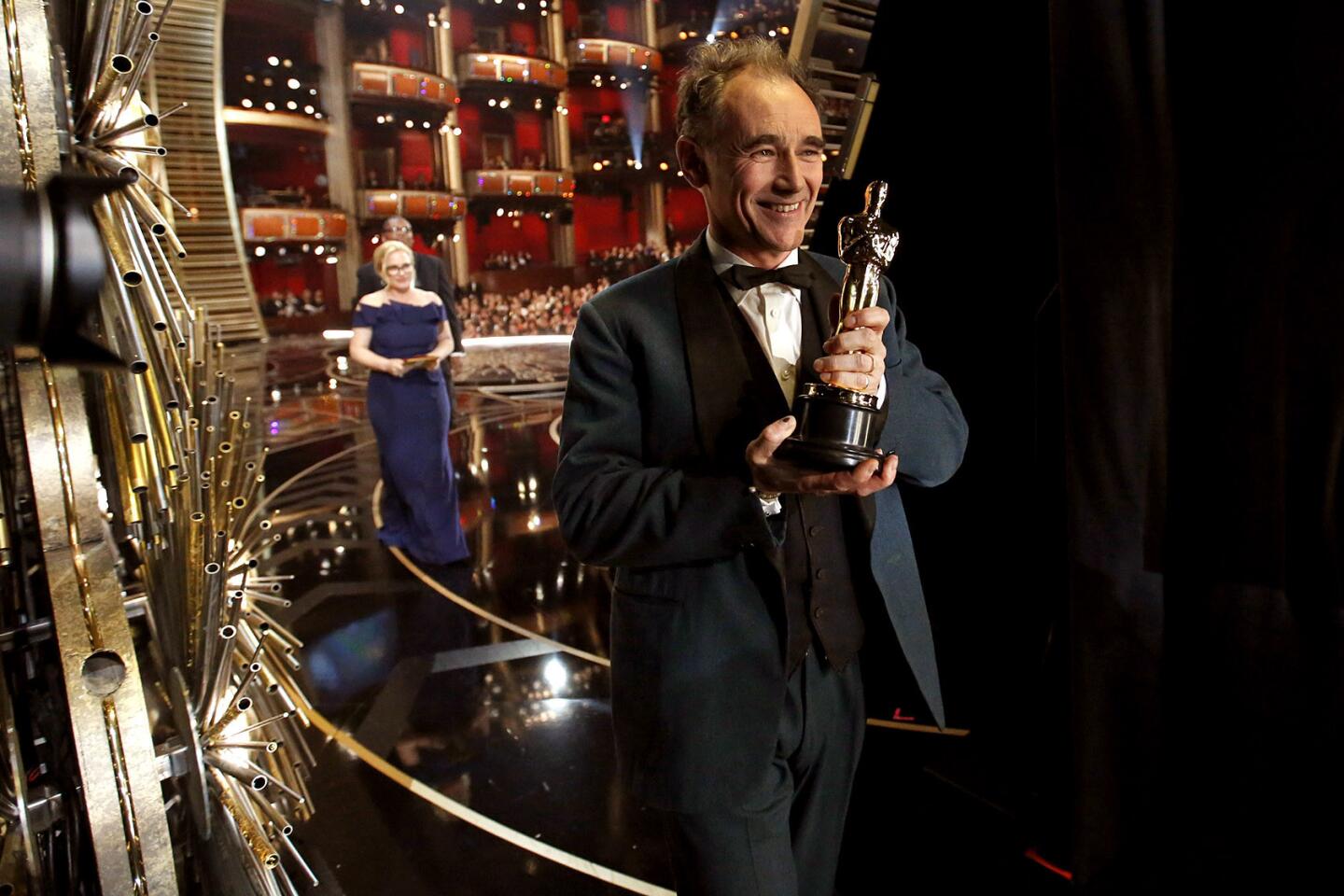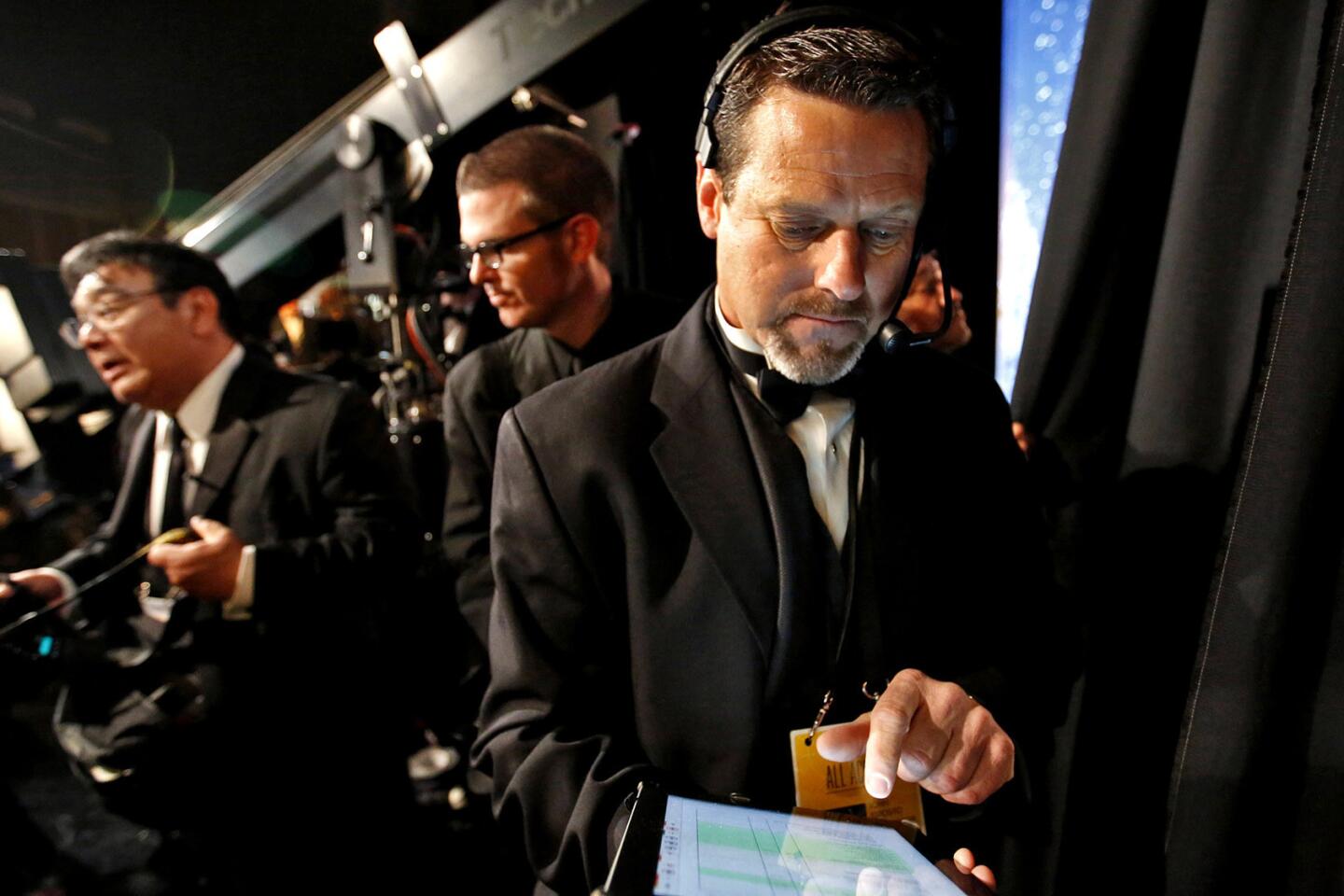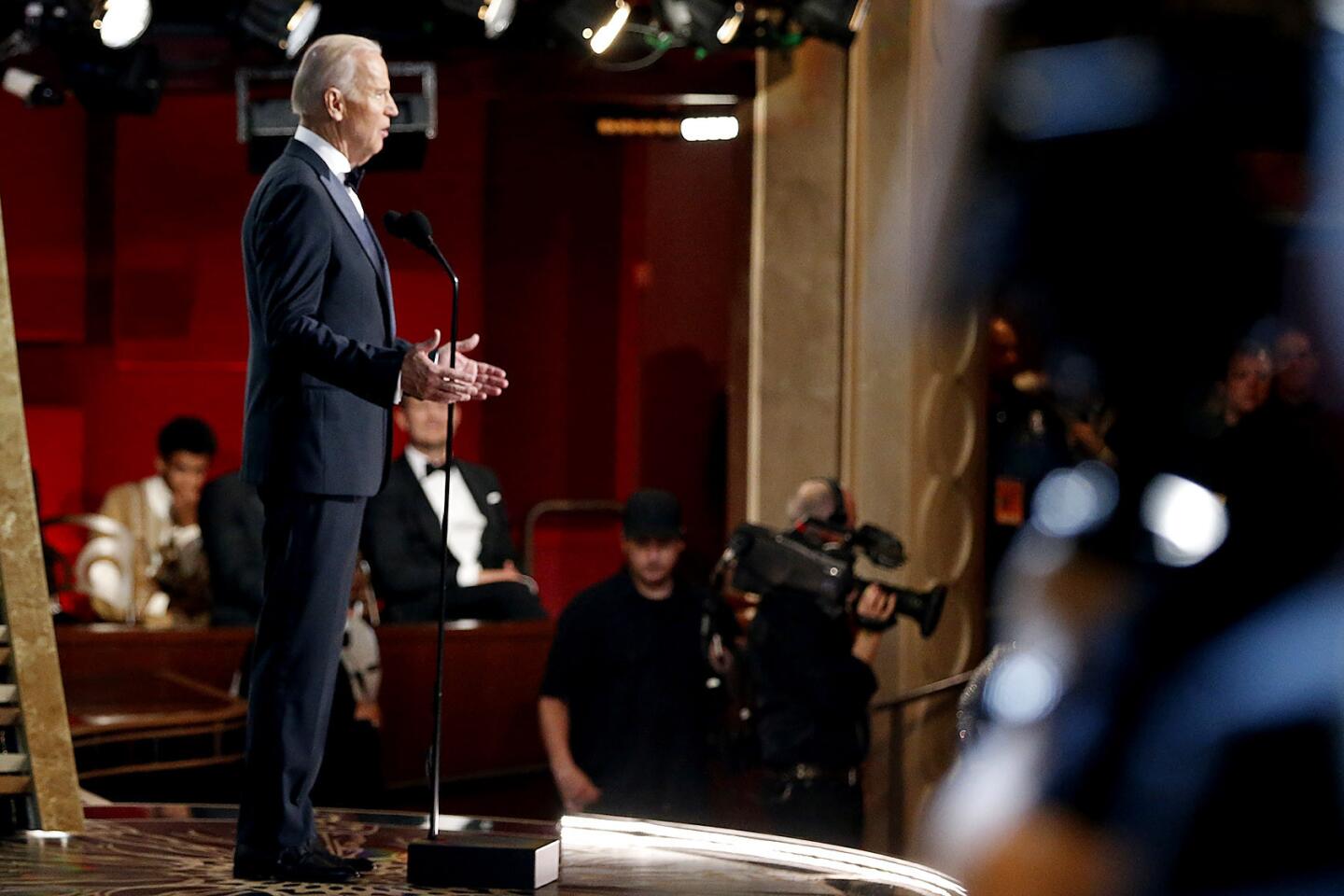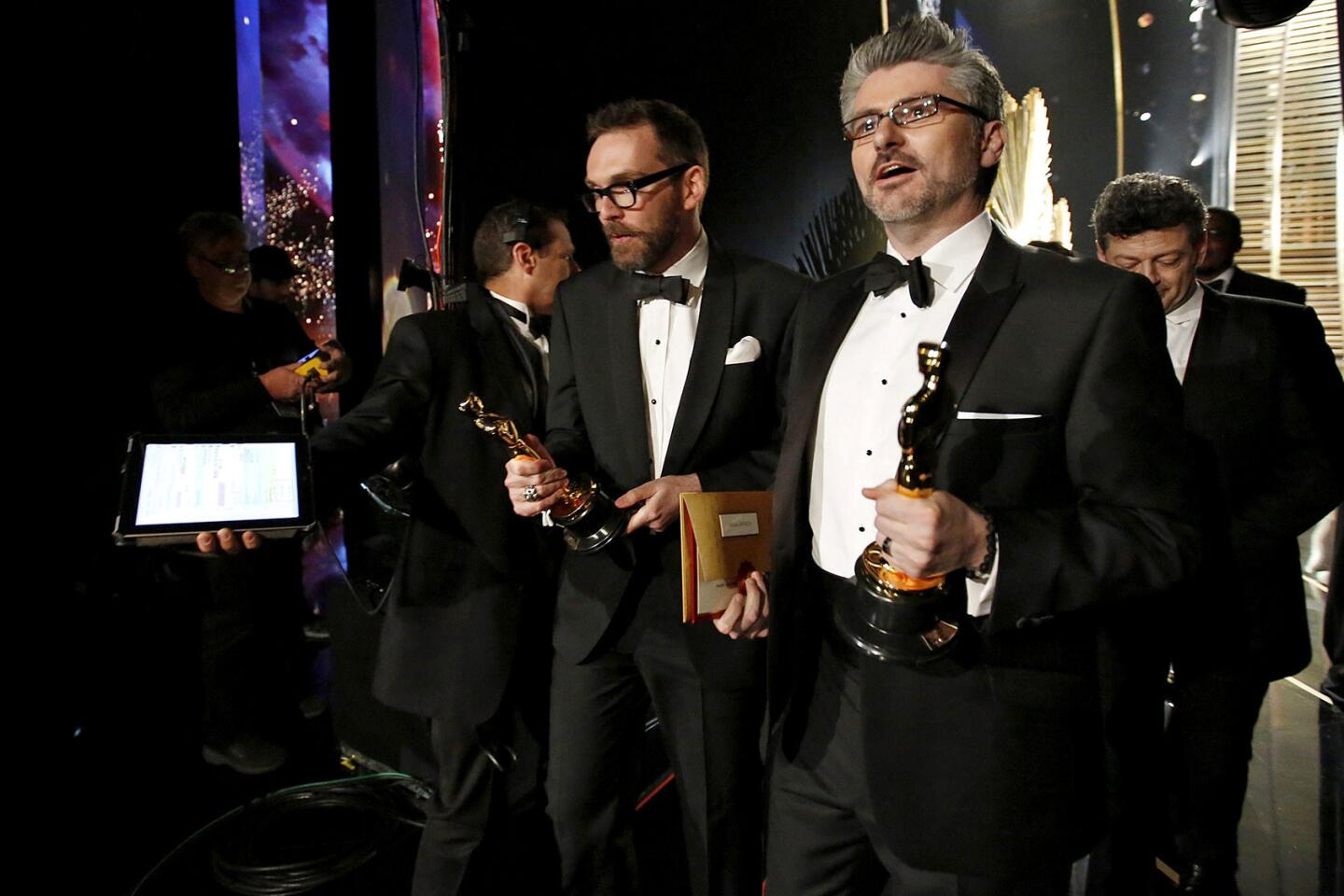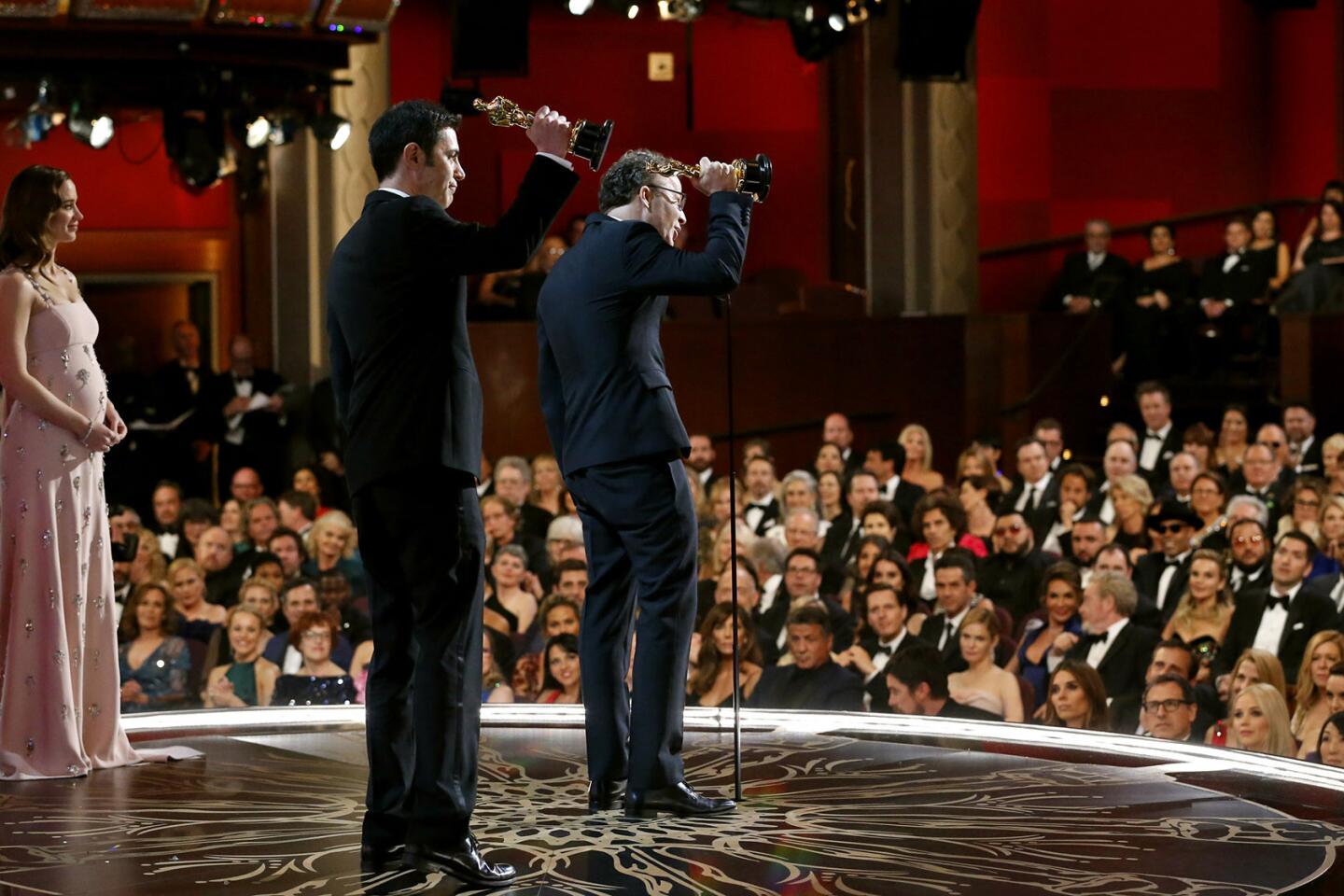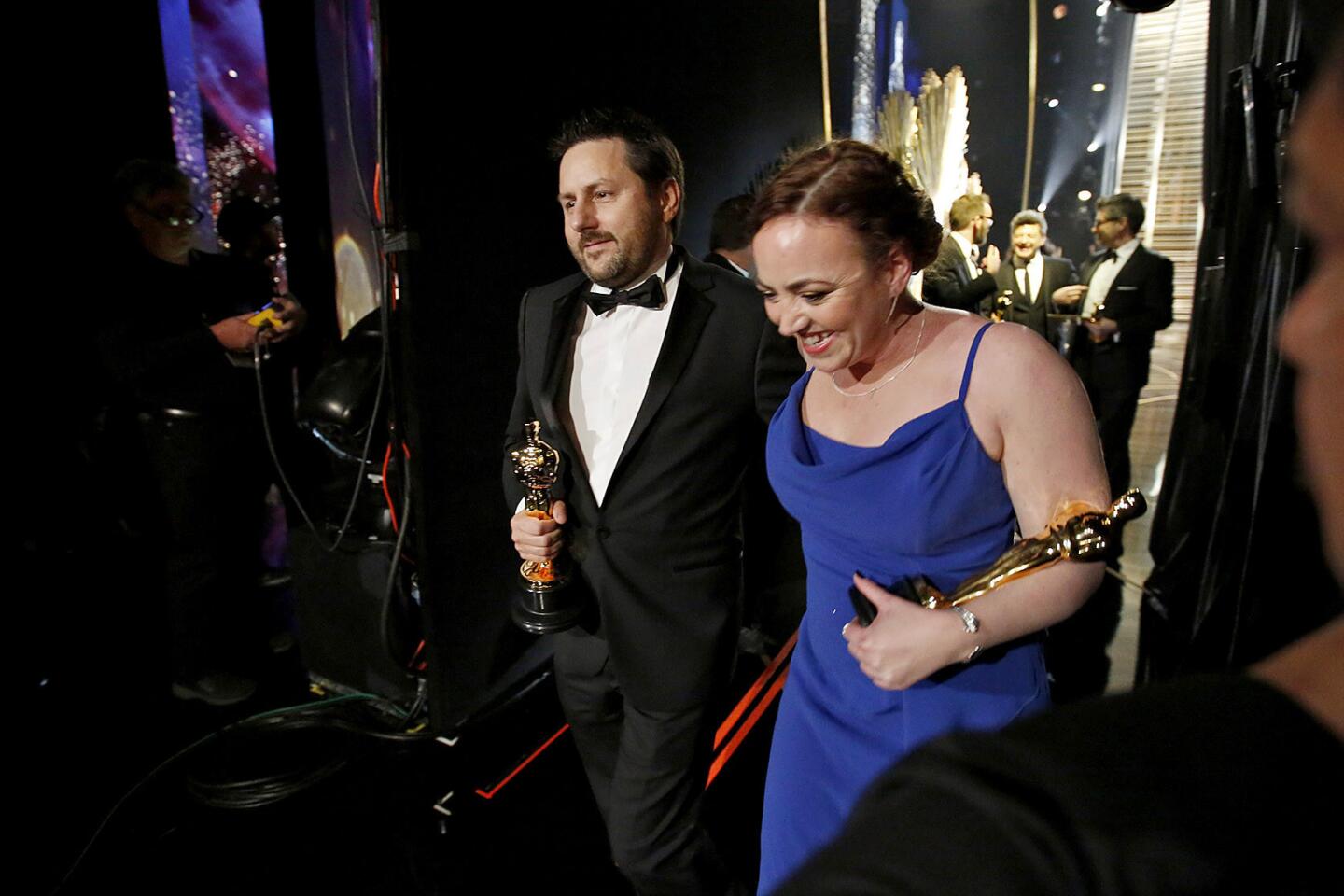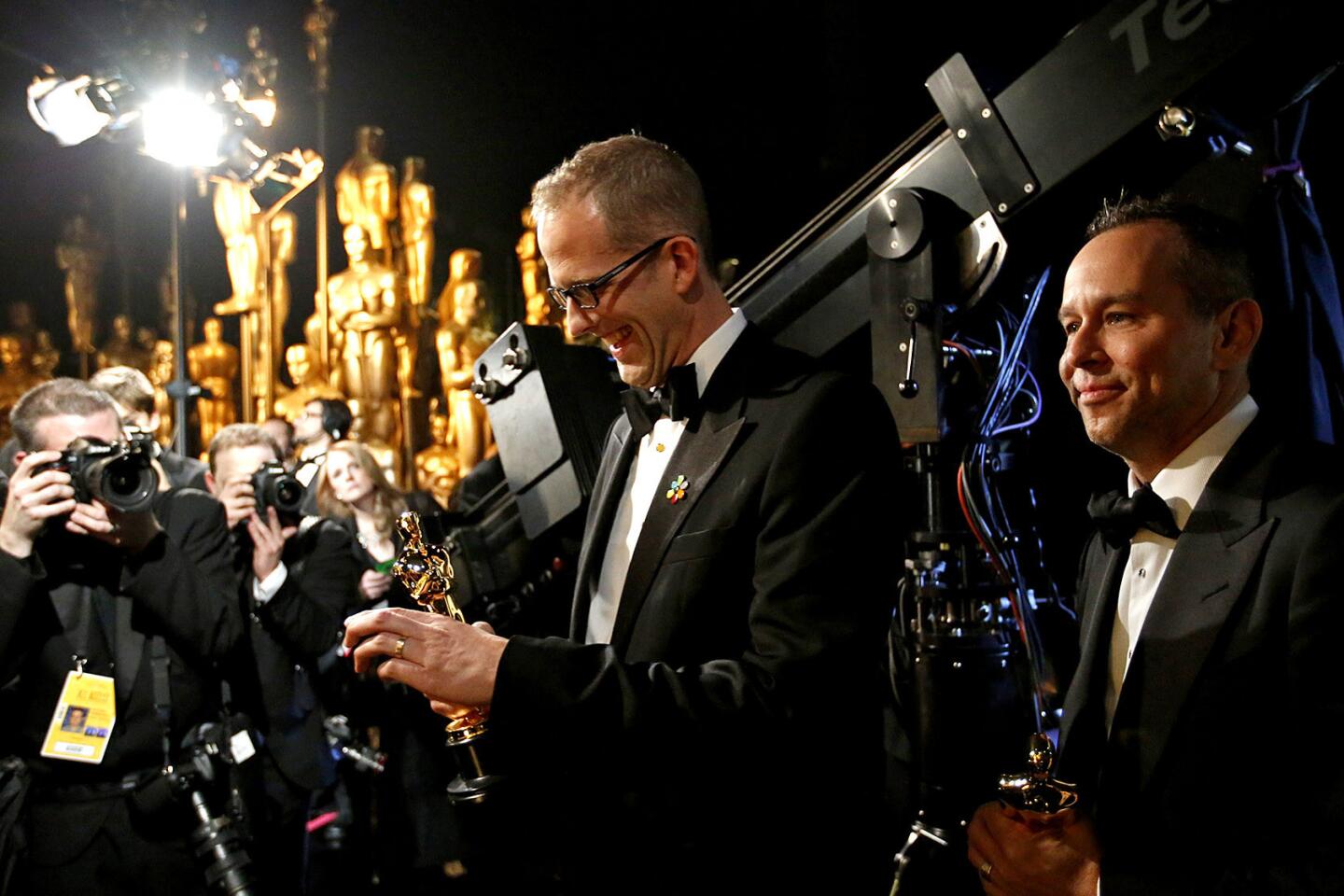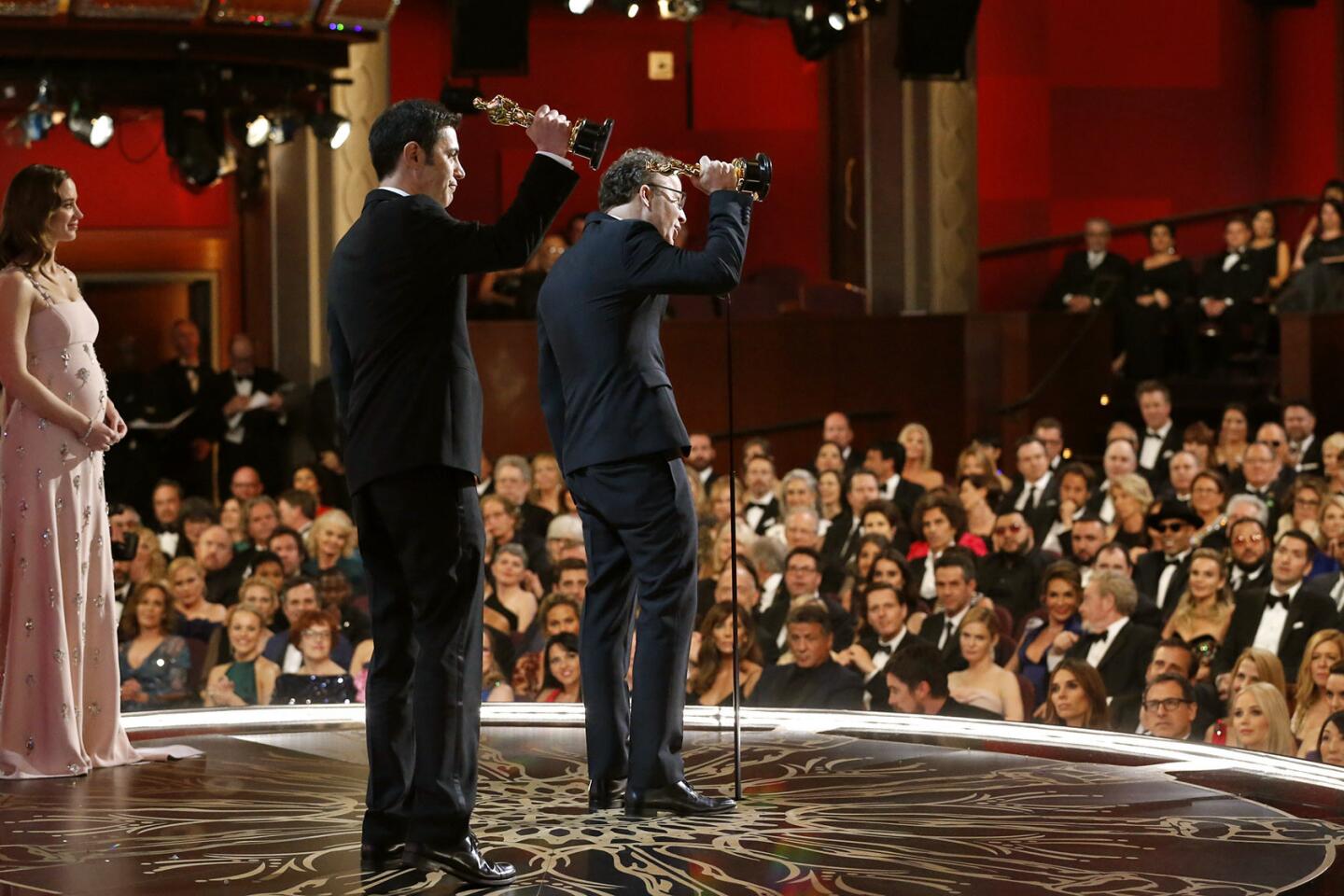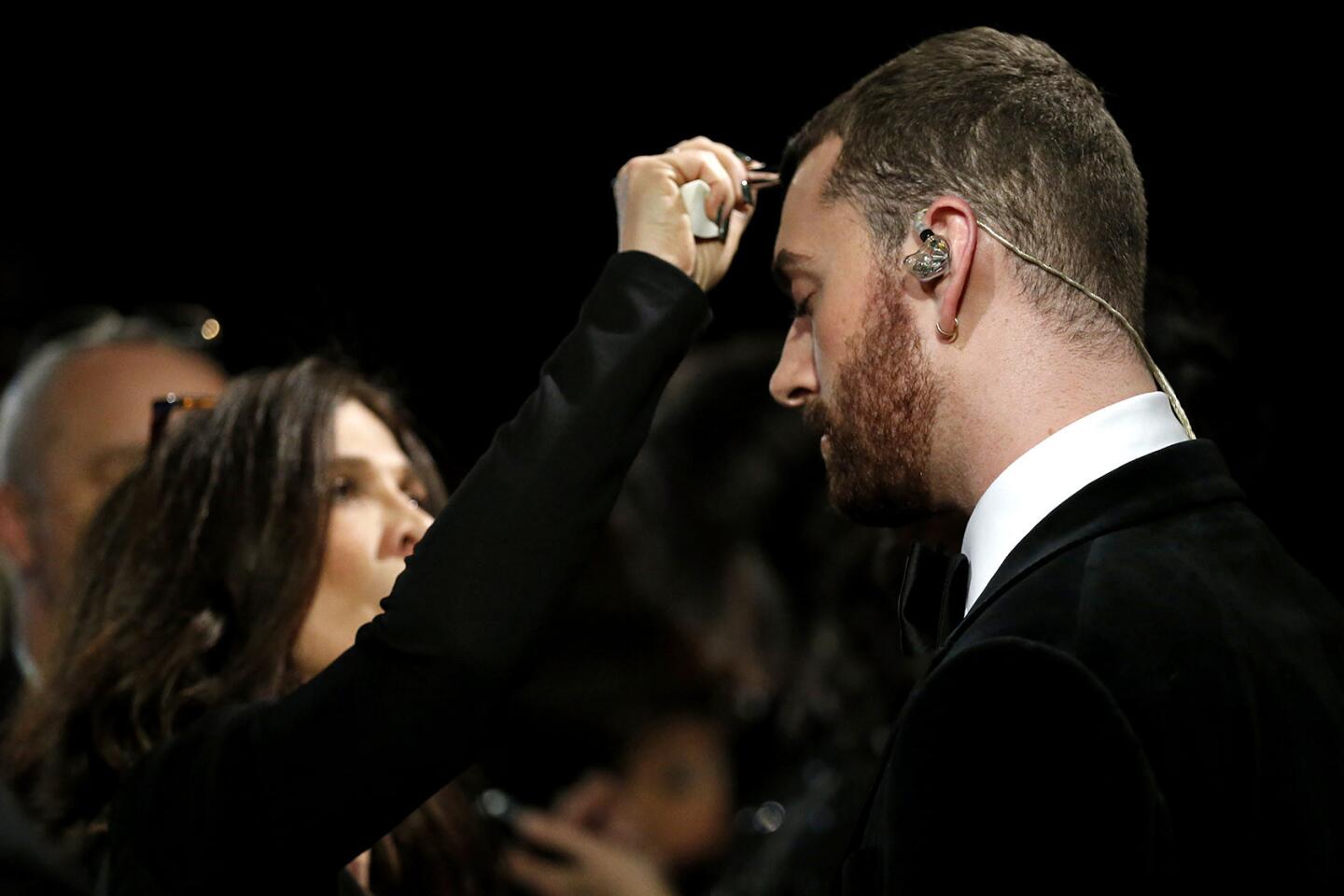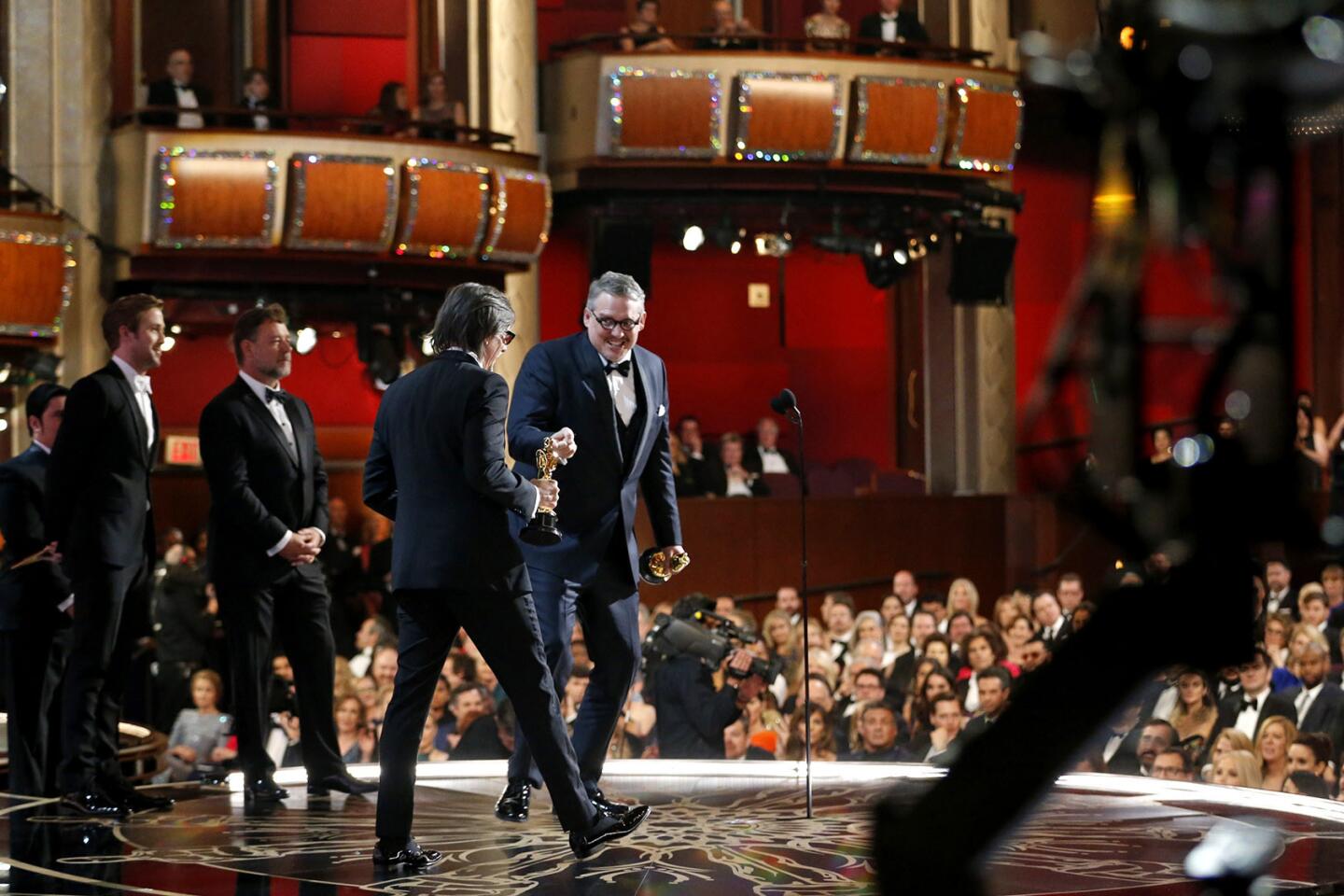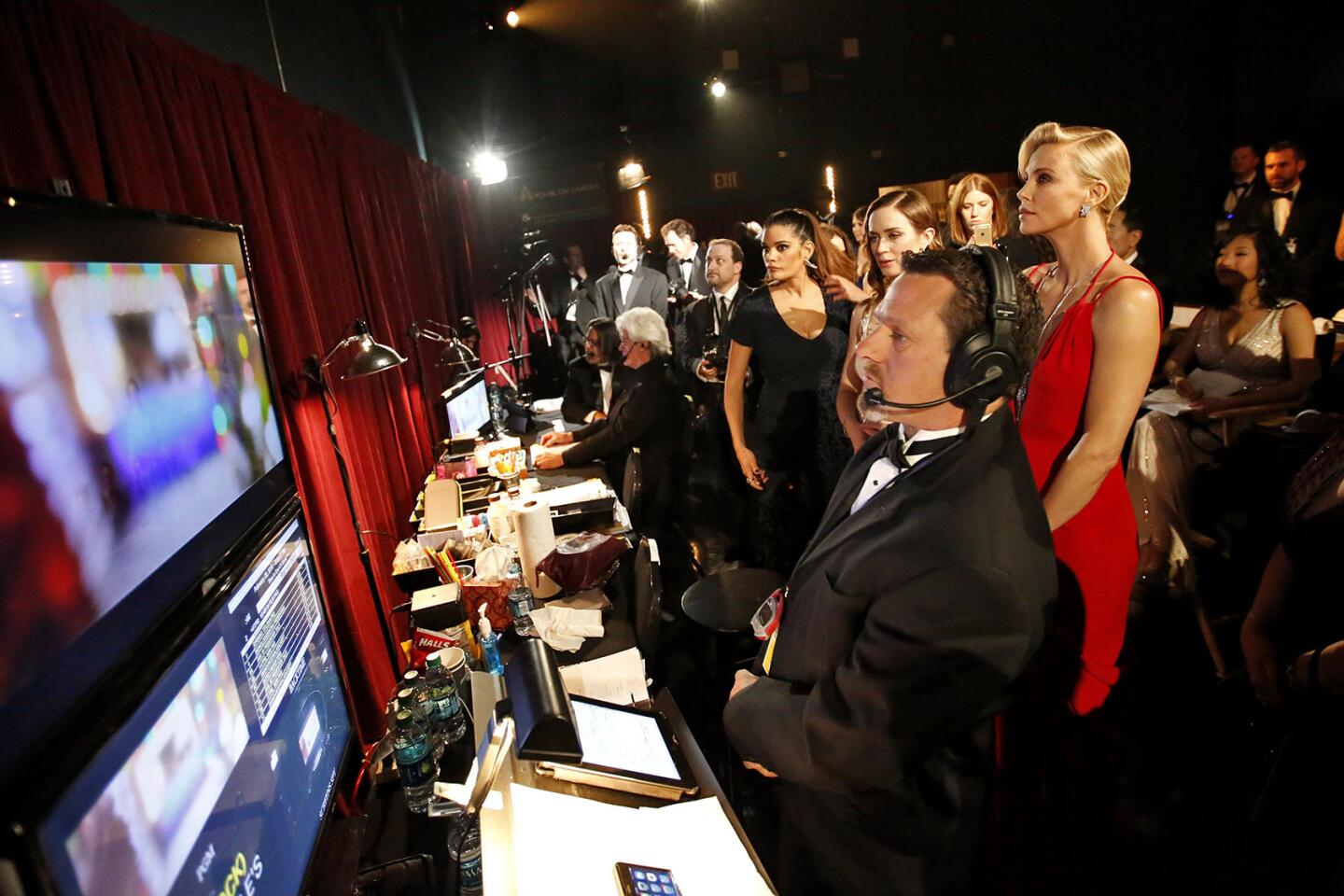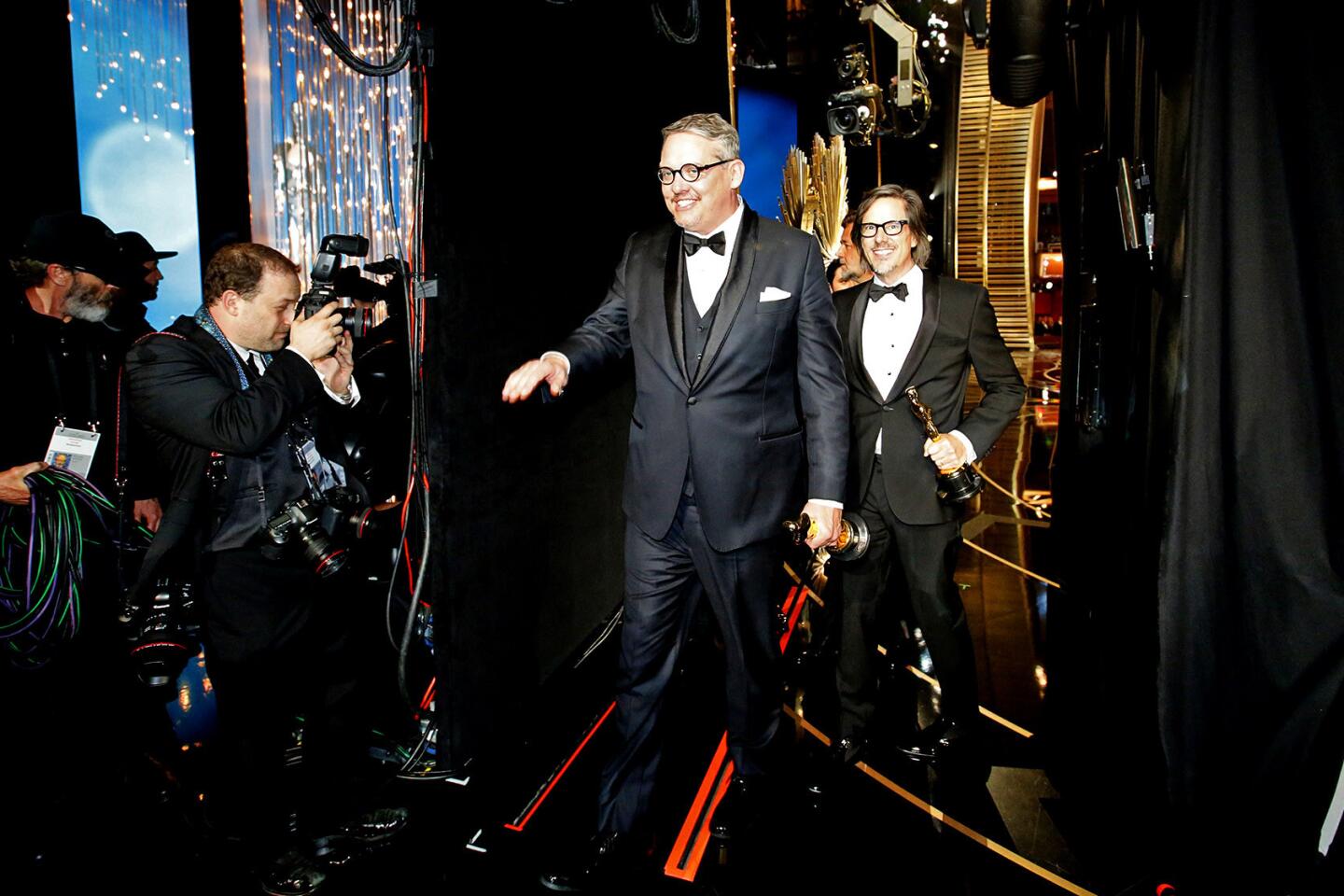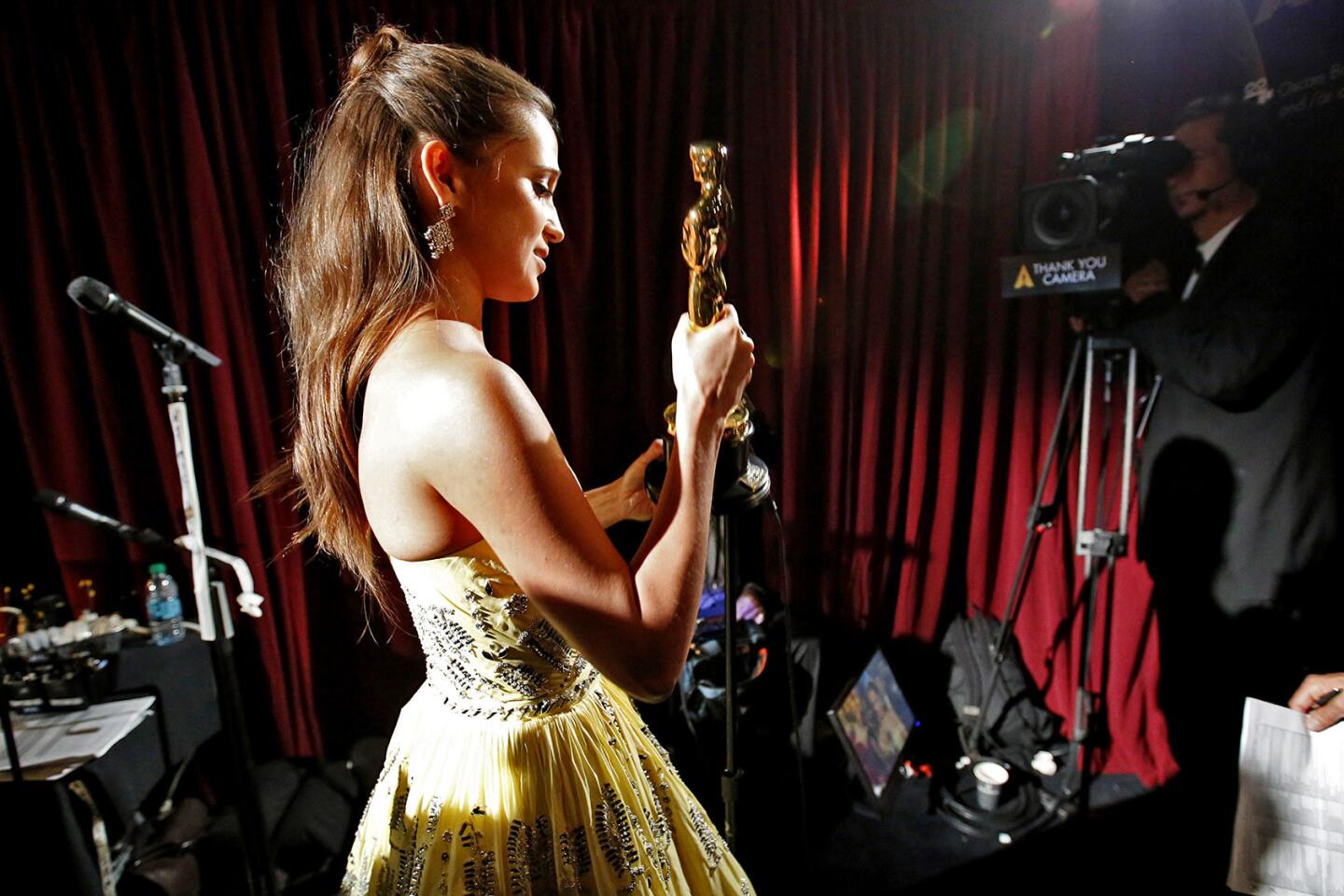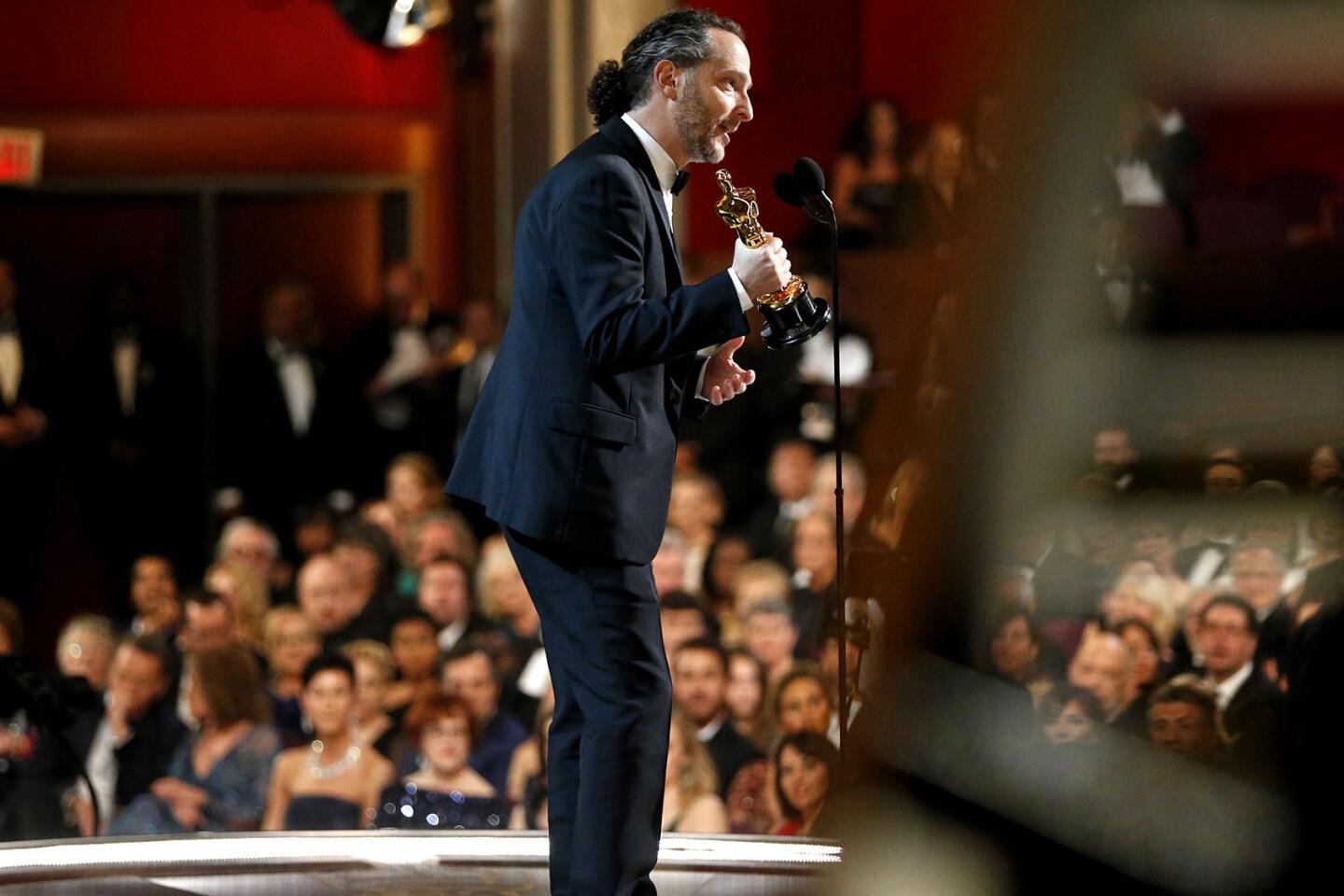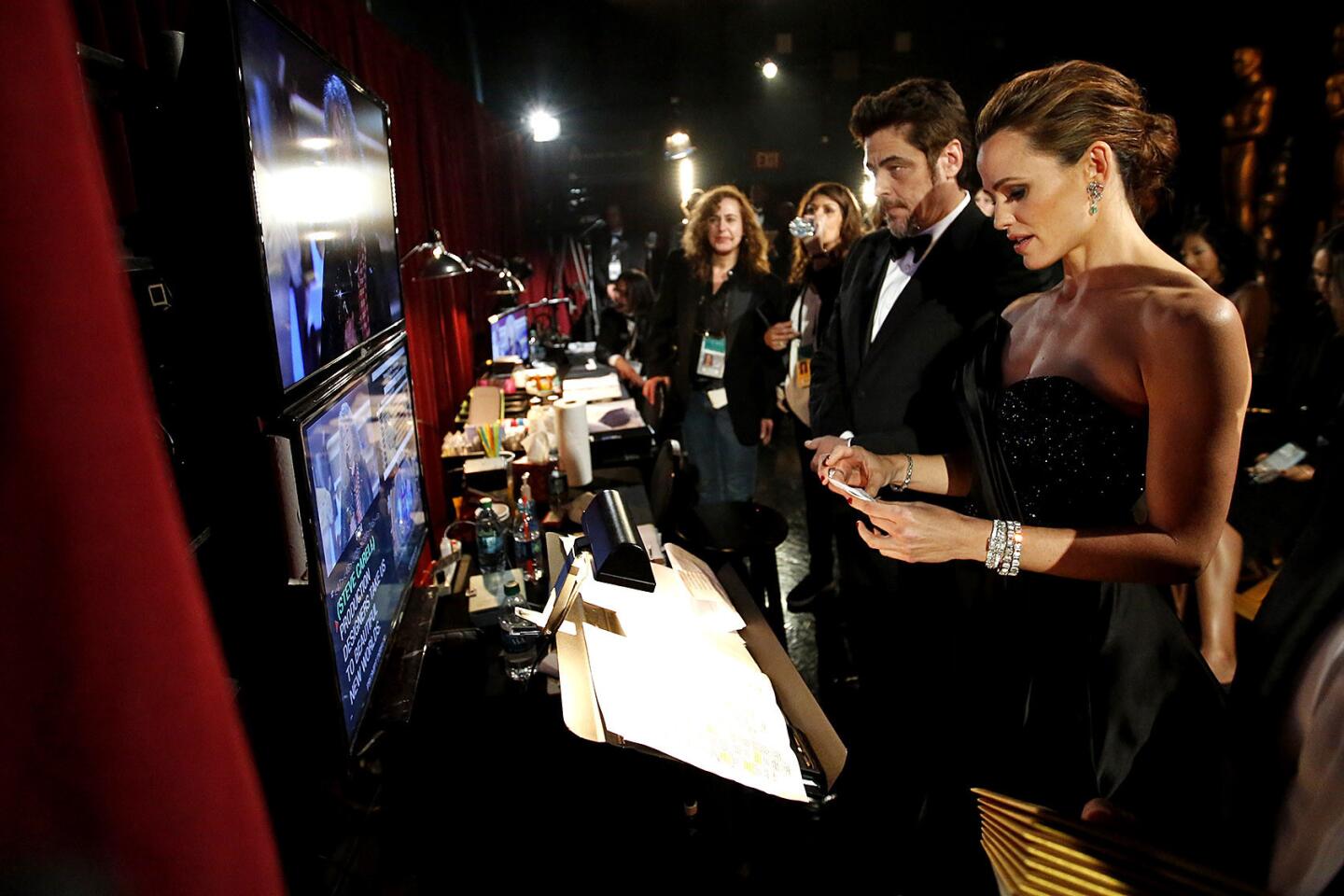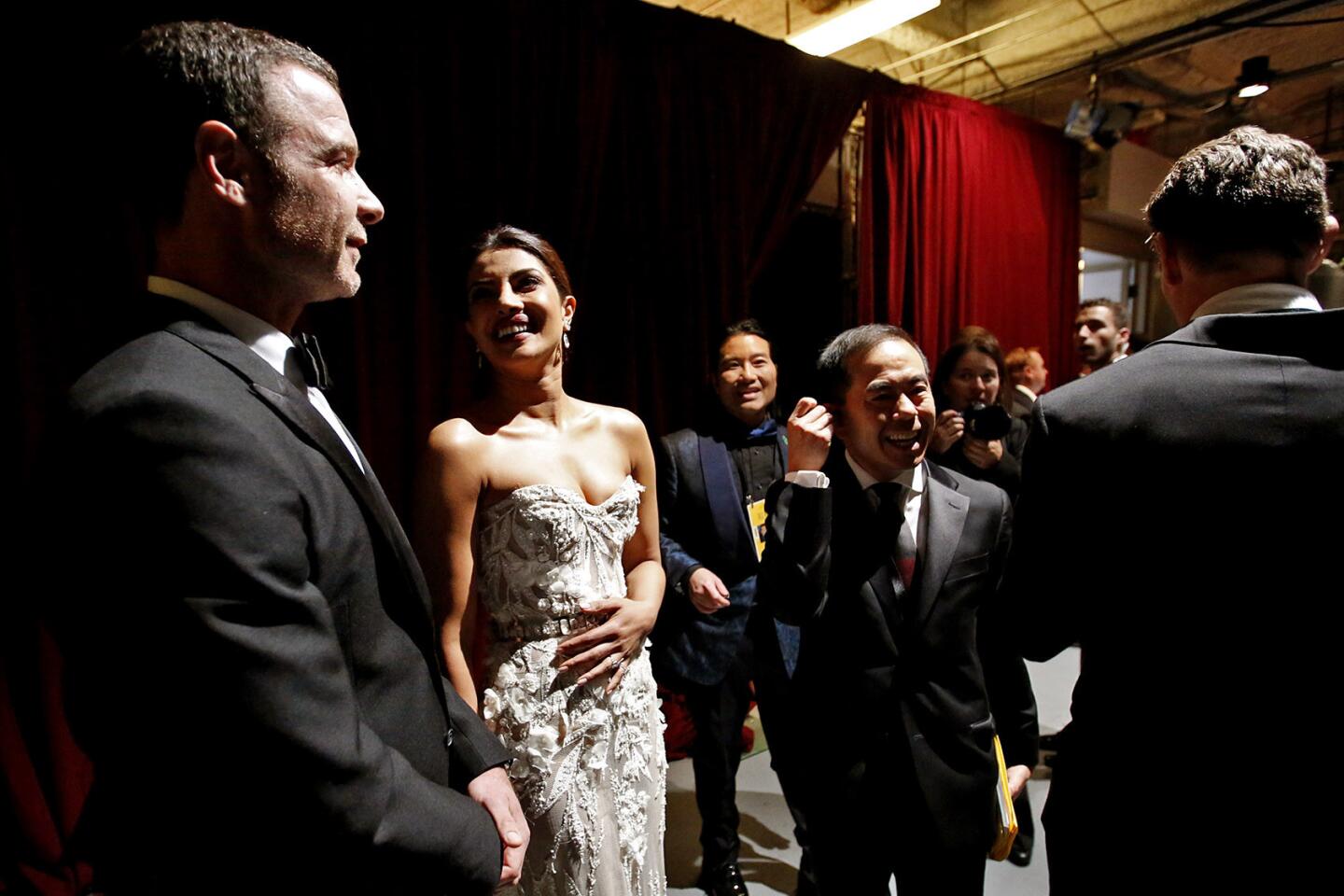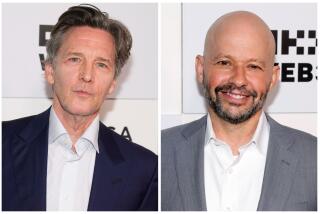‘Spotlight’s’ Tom McCarthy took an unusual path to Oscar victory
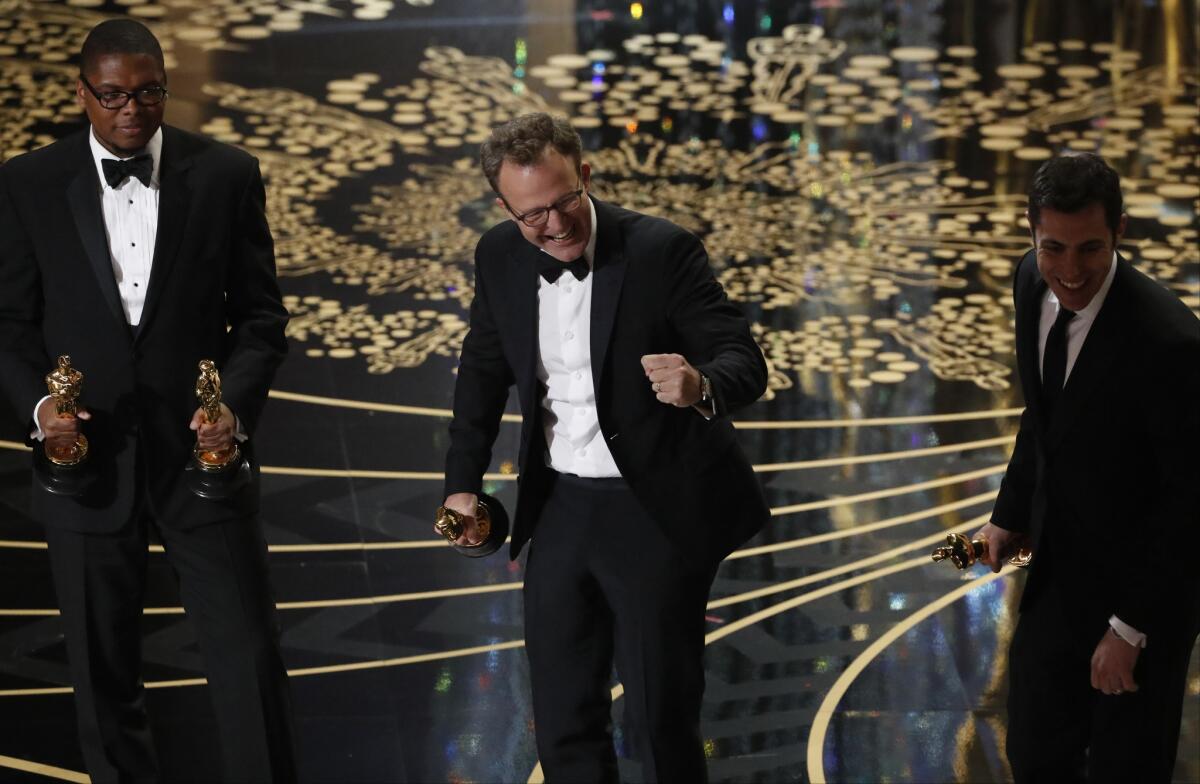
Tom McCarthy, center, won an Oscar for original screenplay for “Spotlight.”
As he walked briskly out of the Dolby Theatre on Sunday night, his screenwriting Oscar in hand, “Spotlight” filmmaker Tom McCarthy slowed down a moment as a reporter sidled up to talk about the season that had just ended.
Wouldn’t it be a relief, after all these months of extolling journalism, to get a break from the ink-stained wretches?
“I gave you guys a shout-out!” he said playfully, referring to a comment he made about journalists during his screenplay acceptance speech. “I mean, you gotta take care of everyone,” he continued lightheartedly.
McCarthy has been taking care of a lot over an improbable 20-year run that’s included a mix of acting, writing and directing. It is, in many respects, a career as uncommon and unexpected as the idea of a slow-burn journalism procedural taking the top prize of the film year.
OSCARS 2016: List of nominees | Red carpet arrivals | Best and worst dressed
Starting out in the mid-90’s as a character actor (at the comparatively late life-stage of 30-ish), McCarthy segued into writing-directing with the Peter Dinklage quirky-loner tale “The Station Agent” in 2003. What seemed like a promising if uncertain beginning — he won the Spirit Award for first screenplay, as sure a sign of such uncertainty as there is — would soon turn into a finely calibrated arc.
McCarthy would continue acting, often in studio pictures such as “Meet the Parents” and “2012.” Those gigs (besides paying the bills) gave him an entree into Hollywood and writing; the writing jobs, which themselves sometimes include more for-hire-ish studio pieces like “Up” and “Million Dollar Arm,” would in turn pave the way for his passion projects.
He would follow his filmmaking debut with 2007’s “The Visitor,” an immigration-themed story of solitude and otherness that hit a post-9/11 sweet spot and gained Richard Jenkins an Oscar nomination.
OSCARS 2016: Show highlights | Backstage | Winners room
In 2011, McCarthy returned with “Win Win,” a seemingly simple story set in a small New Jersey town that somehow managed to encompass parent-child relationships, the Great Recession, high-school wrestling, masculinity and the legal system. (McCarthy grew up in New Jersey and sets most of his movies on the East Coast.)
His trajectory is unusual. The actor-director — or at least the actor-director who consistently finds work in both realms — is a rare enough breed in moviedom. A person who’s able to wear that label while also putting together a dossier of acclaimed movies like “The Visitor,” “Win Win” and “Spotlight” is even less common.
Throughout, McCarthy’s work has been known for a kind of humanist authenticity; characters are rarely all good or all bad, and they tend to talk and act as people do in real life. He also often mixes the comedic with the dramatic, a difficult skill and lost art.
Achieving this isn’t easy. McCarthy has developed a reputation as an exacting on-set presence — patient and friendly, but also intense with a hint of the obsessive. One day during production of “Win Win” witnessed by a reporter, a 15-second scene was shot and re-shot with the persistence of Steph Curry taking 300 practice jumpers.
If that attitude demands a lot from those around him, it has also attracted the right kind of talent: the likes of Jenkins, Paul Giamatti, Mark Ruffalo and a host of actor’s actors have sought to work with him. Speaking to The Times last spring about the musician-turned-actor Cliff “Method Man” Smith, McCarthy gave a glimpse into his own mind-set on the subject of going all out.
OSCARS 2016: Awkward Oscar moments | Awards season database
“Cliff’s work ethic is great,” he said of Smith, whom he had worked with in the past. “And whether you’re a good rapper or not, you only become a famous rapper if you work hard.”
Mary Jane Skalski, a producer who has often collaborated with McCarthy, said in an email Monday that “Tom is endlessly curious, amazingly open and the smartest guy in the room who never has to be the smartest guy in the room. I’m not surprised he made a great movie about investigative journalists — he would have been a great investigative journalist.”
The New York-based McCarthy became a favorite of journalists this season because he made a movie that flatters them. But it hasn’t hurt that in his rapid-fire interview responses, he tends to avoid soundbites, frequently responding with some of the nuggets about human nature for which his movie are known. Asked about his unvarnished depiction of a slack-jawed teenager in “Win Win” at the time of that film’s release, for instance, he said, “The thing about people that age is they know everything that’s going on. They just don’t let you know they know everything that’s going on.”
(He has also, it should be said, earned something of a good-guy image in the chatty film industry. On Sunday night, as executives at Open Road Films and Anonymous Media — the distributor and producer of “Spotlight,” respectively —waited for him to arrive at a post-Oscars party at a West Hollywood restaurant, they noted the role that McCarthy’s favorable reputation might have played in the tight race for best picture.)
Where his newfound awards cachet takes him remains to be seen.
Cautionary tales of the Oscar-anointed abound, such as the story of the European director Florian von Donnersmarck, who in 2007 hit it big with his foreign-language Oscar winner “The Lives of Others “ — like “Spotlight” also about the perils of institutional secrecy —and used the clout to make a star vehicle, the Angelina Jolie- and Johnny Depp-toplined “The Tourist.” It was a notorious misfire.
Though McCarthy and his representatives haven’t locked in a new project, most in the industry don’t believe the director is likely to take a step to big studio movies. Partly that’s because his unflashy directing style hasn’t earned McCarthy the same kind of attention or director-category acclaim as, say, “The Revenant” helmer Alejandro G. Iñárritu. But it’s also because McCarthy is the kind of filmmaker who would much rather write and direct his own stories; if the screenplay and best picture Oscars for “Spotlight” give him desired leverage in Hollywood, it’s simply to make more such tales.
(Questions about next films, incidentally, haven’t always permeated the best-picture category: Last year’s best picture director, Inarritu, was already well under way on “The Revenant” after his movie won the Oscar.)
Hard to avoid in the “Spotlight” victory story is the turnaround aspect, or, really, a recent failure. Much has been made of Iñárritu’s prolific work pace. But McCarthy, too, had a movie at the fall festivals in 2014. It was “The Cobbler,” a fable-slash-high-concept action comedy starring Adam Sandler that marked a leap to a new genre. It didn’t work. The film was dissed by many critics for its tonal jumble and given only a limited release.
McCarthy was open about how the backlash affected him.
“The critical reaction was difficult,” he said in an interview in the fall. “It’s like the athlete who had a bad moment or game...You’d be lying if you said you don’t feel it. But in the end, it reinforced that all we could do is the work. The reviews for ‘The Cobbler’ came out while we were working on ‘Spotlight.’ And what they really did was just reinforce my desire to keep going.”
ALSO:
Joe Biden wasn’t as funny at the Oscars as Chris Rock, but at least he didn’t make an Asian joke
How Lady Gaga won the Oscars without taking home a trophy
Chris Rock’s hot mess of an Oscars show: powerful, confounding, possibly revolutionary
More to Read
From the Oscars to the Emmys.
Get the Envelope newsletter for exclusive awards season coverage, behind-the-scenes stories from the Envelope podcast and columnist Glenn Whipp’s must-read analysis.
You may occasionally receive promotional content from the Los Angeles Times.

